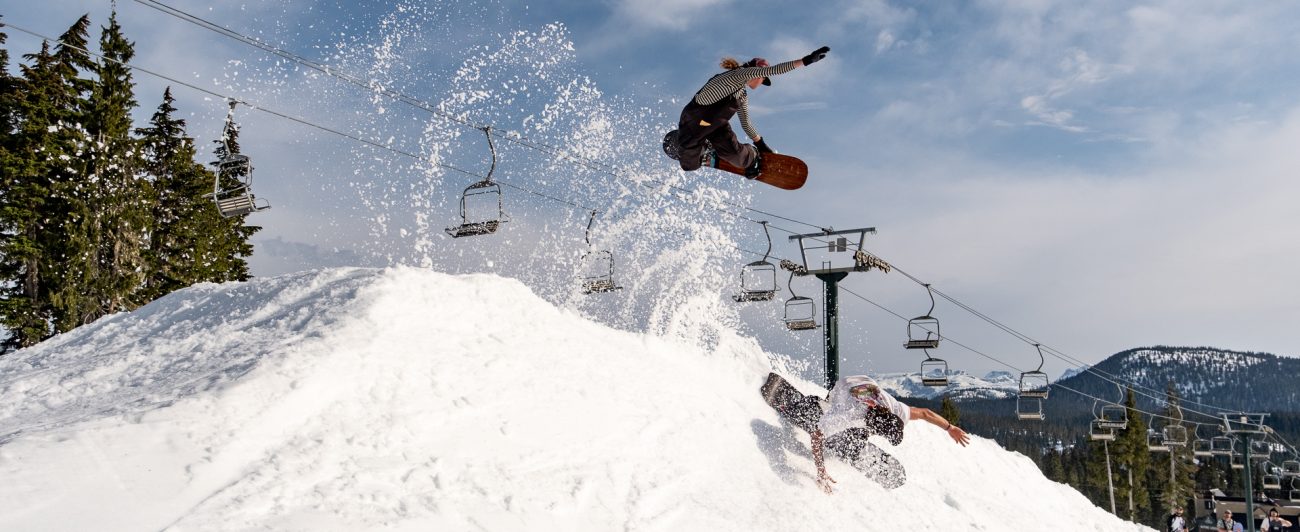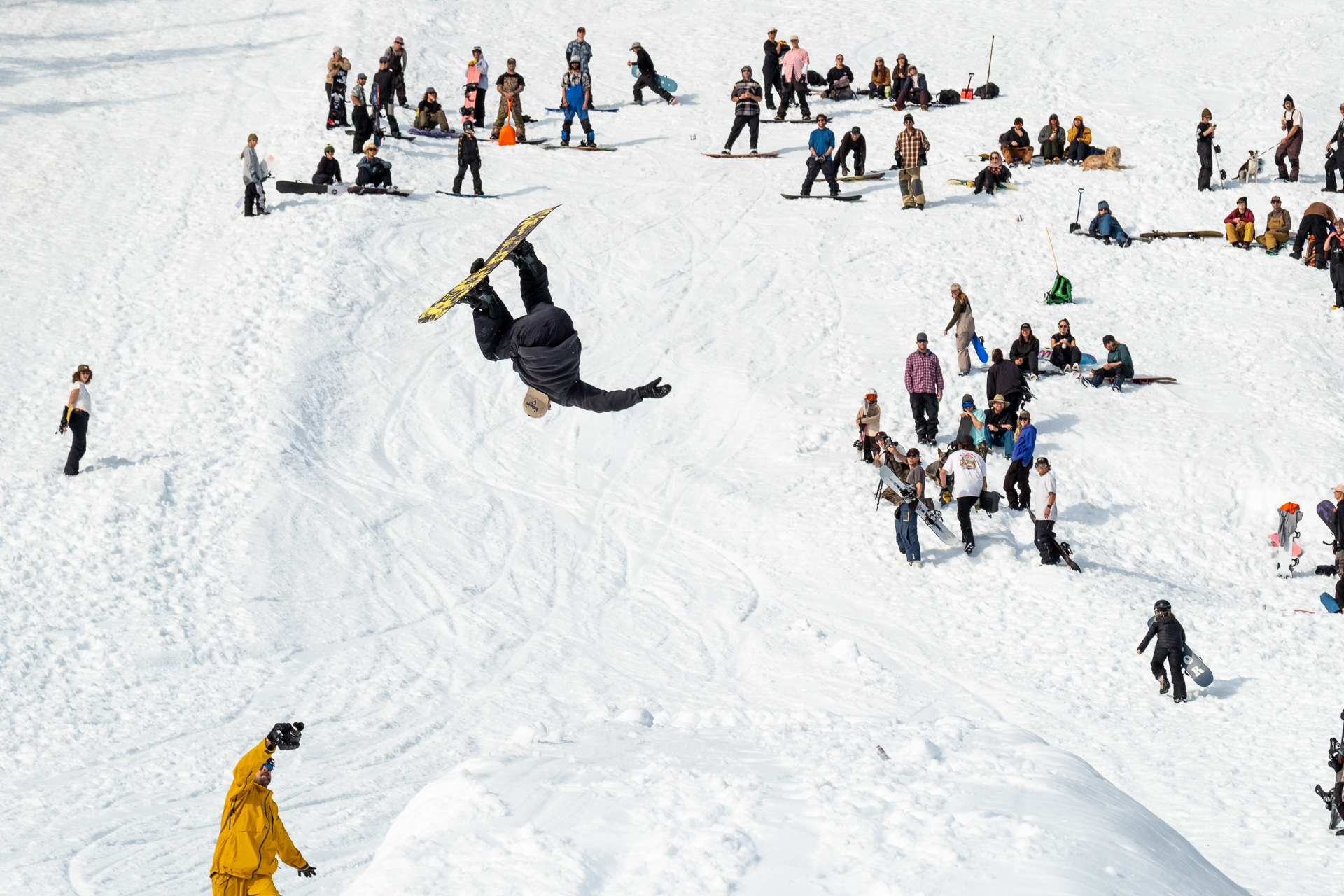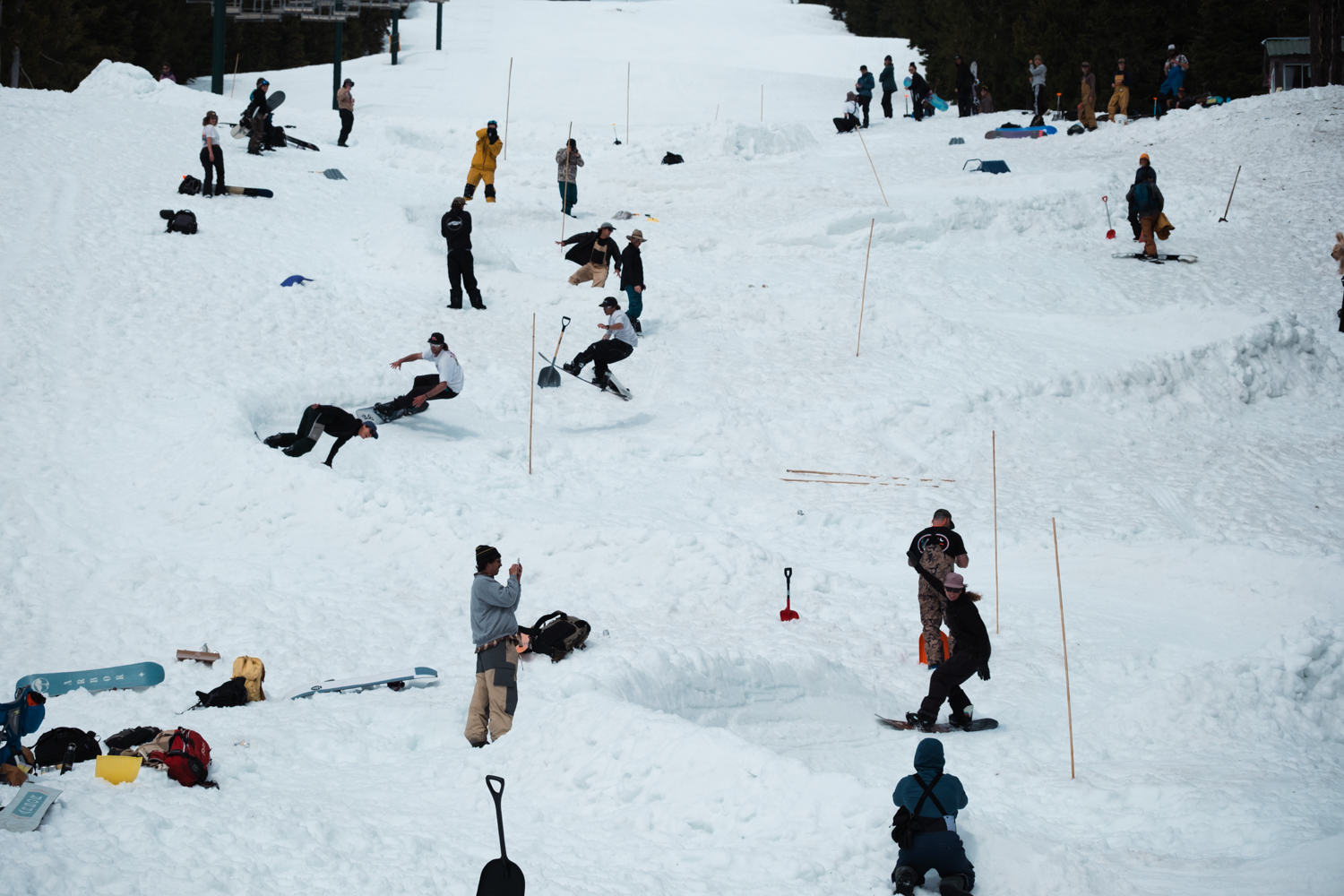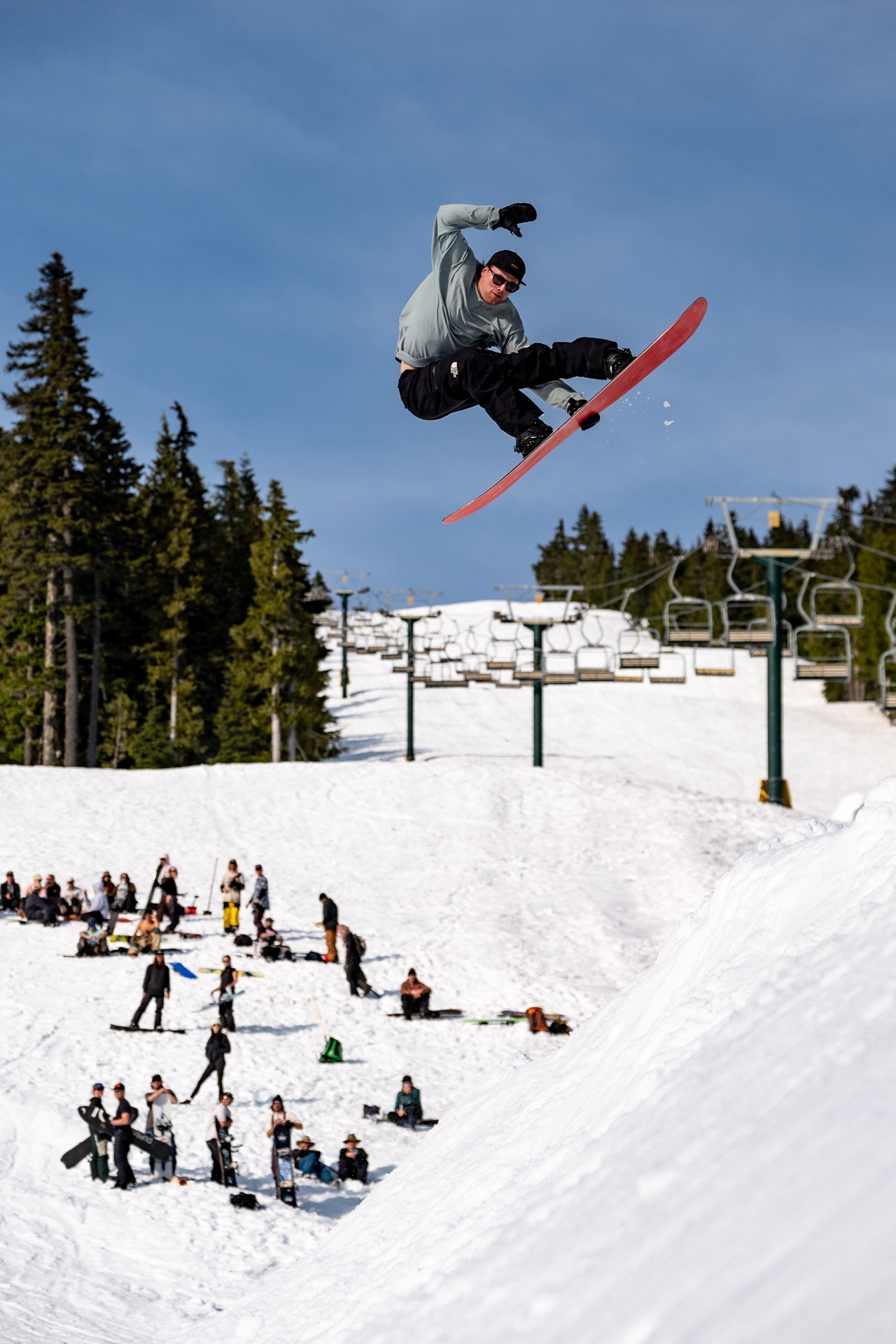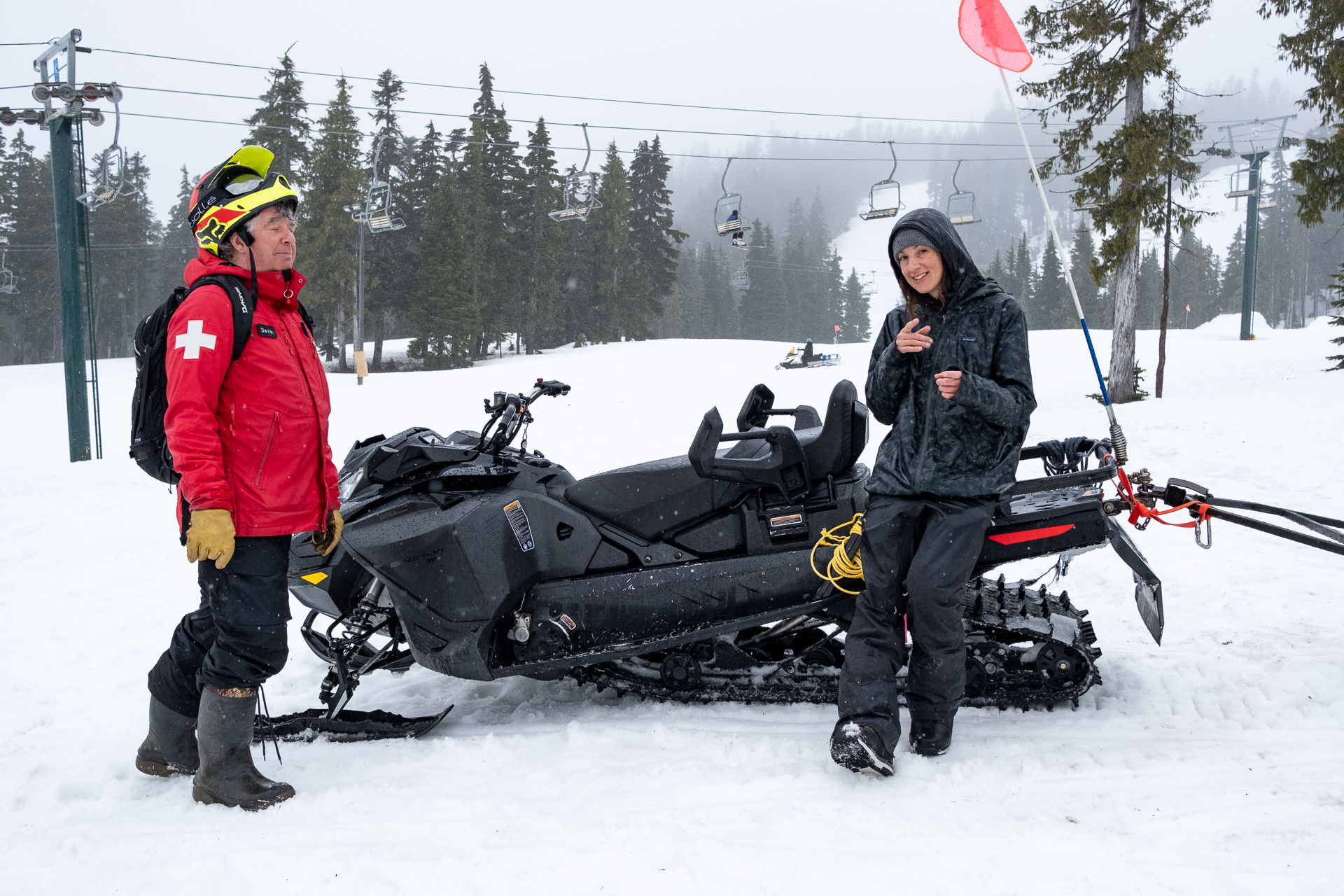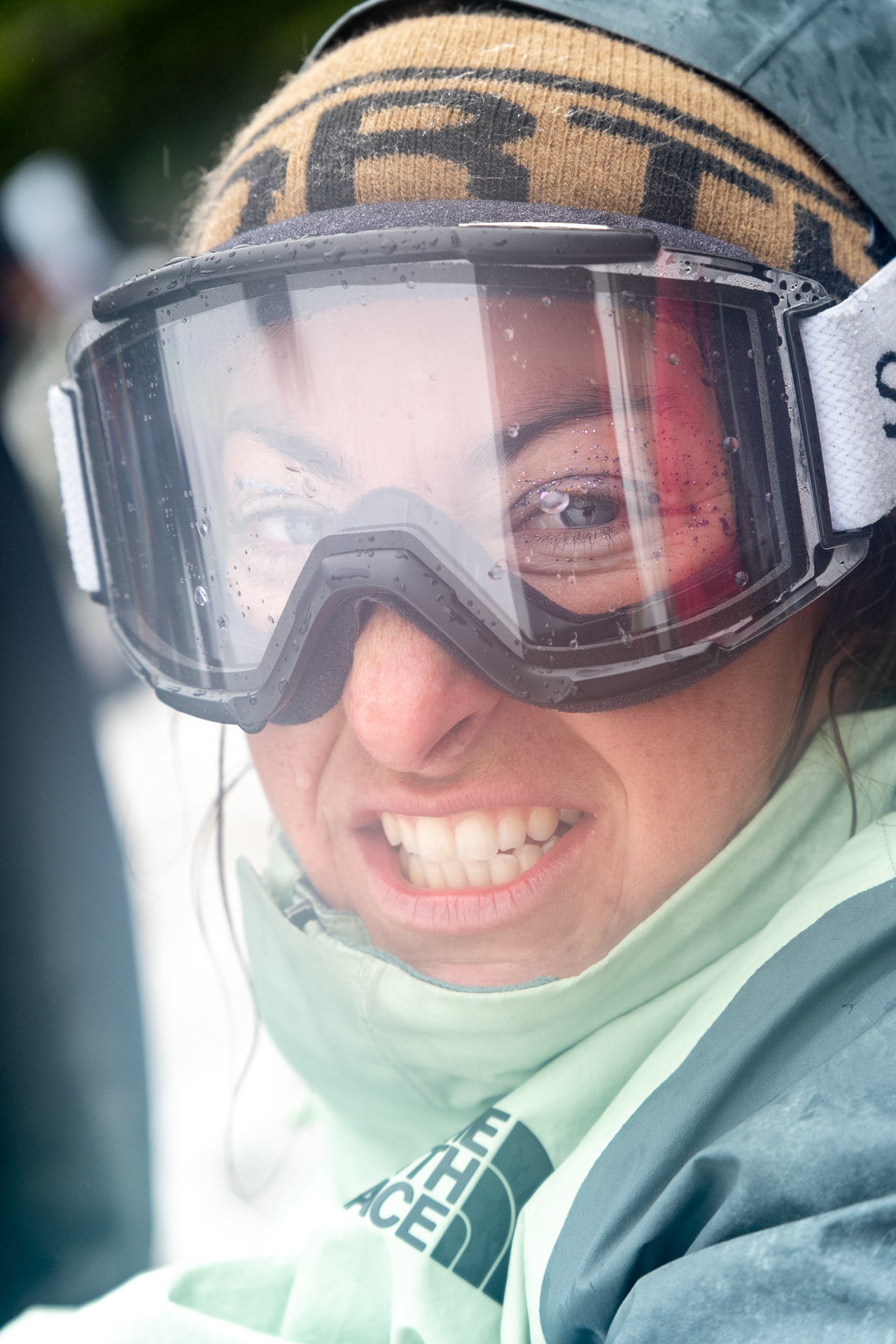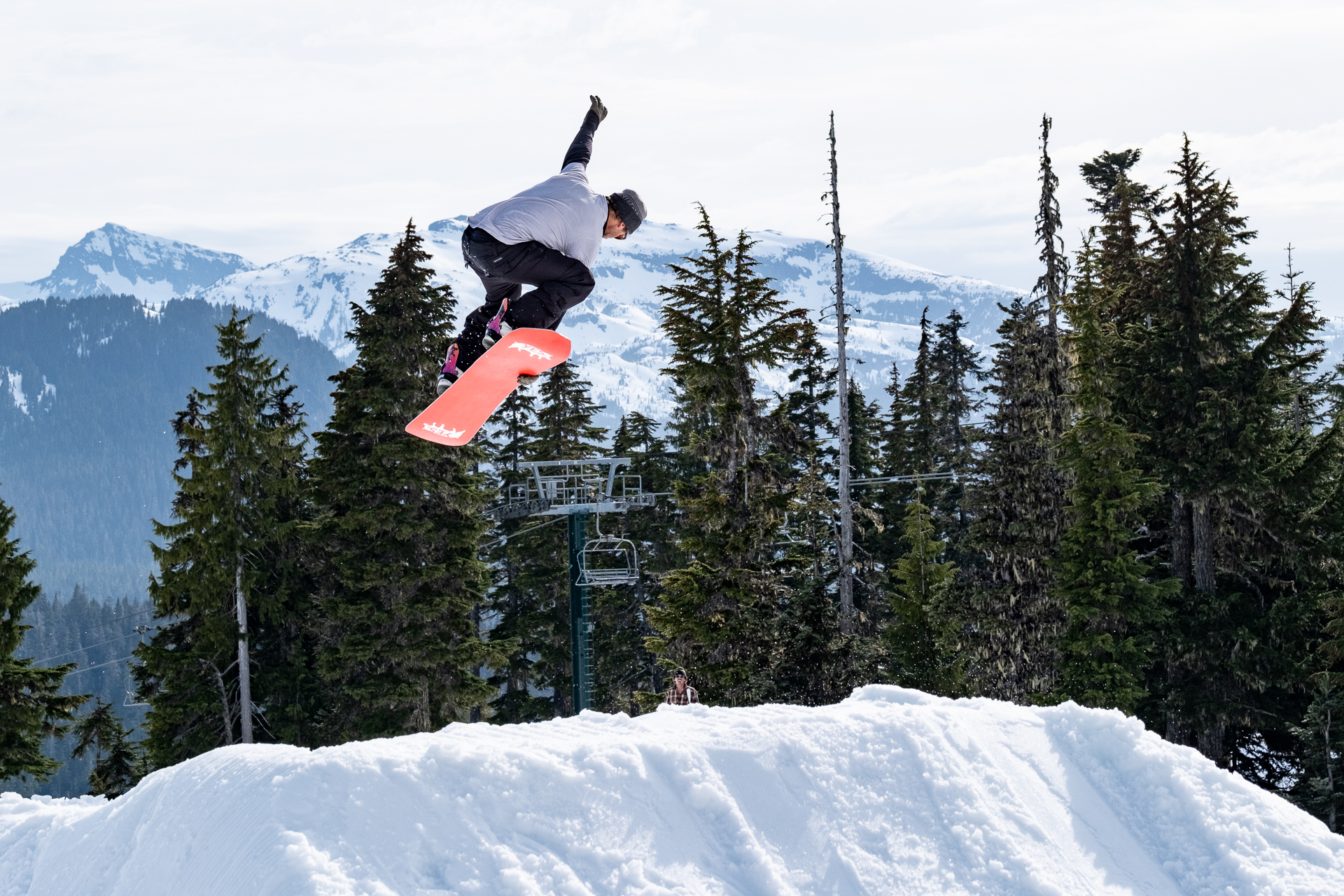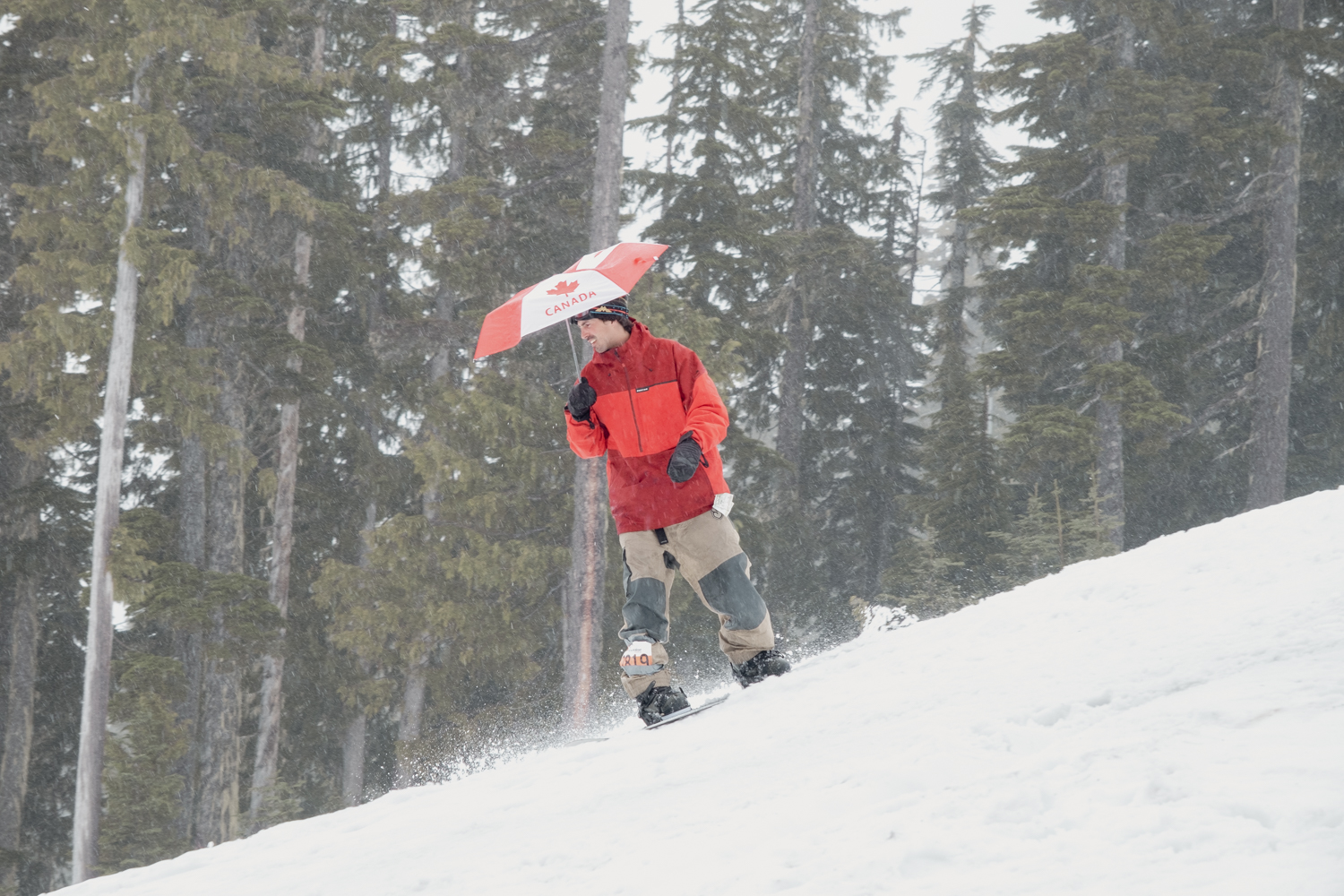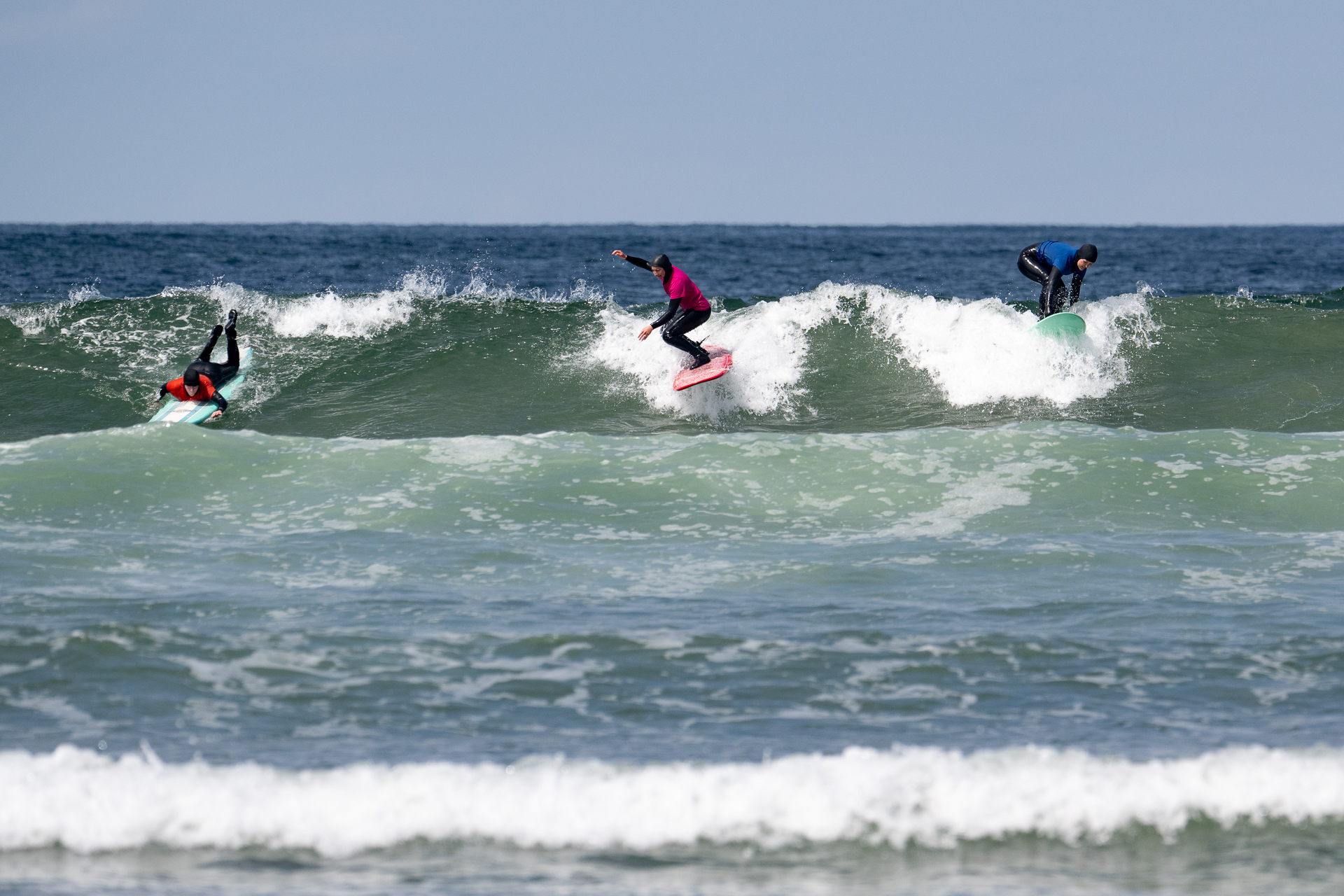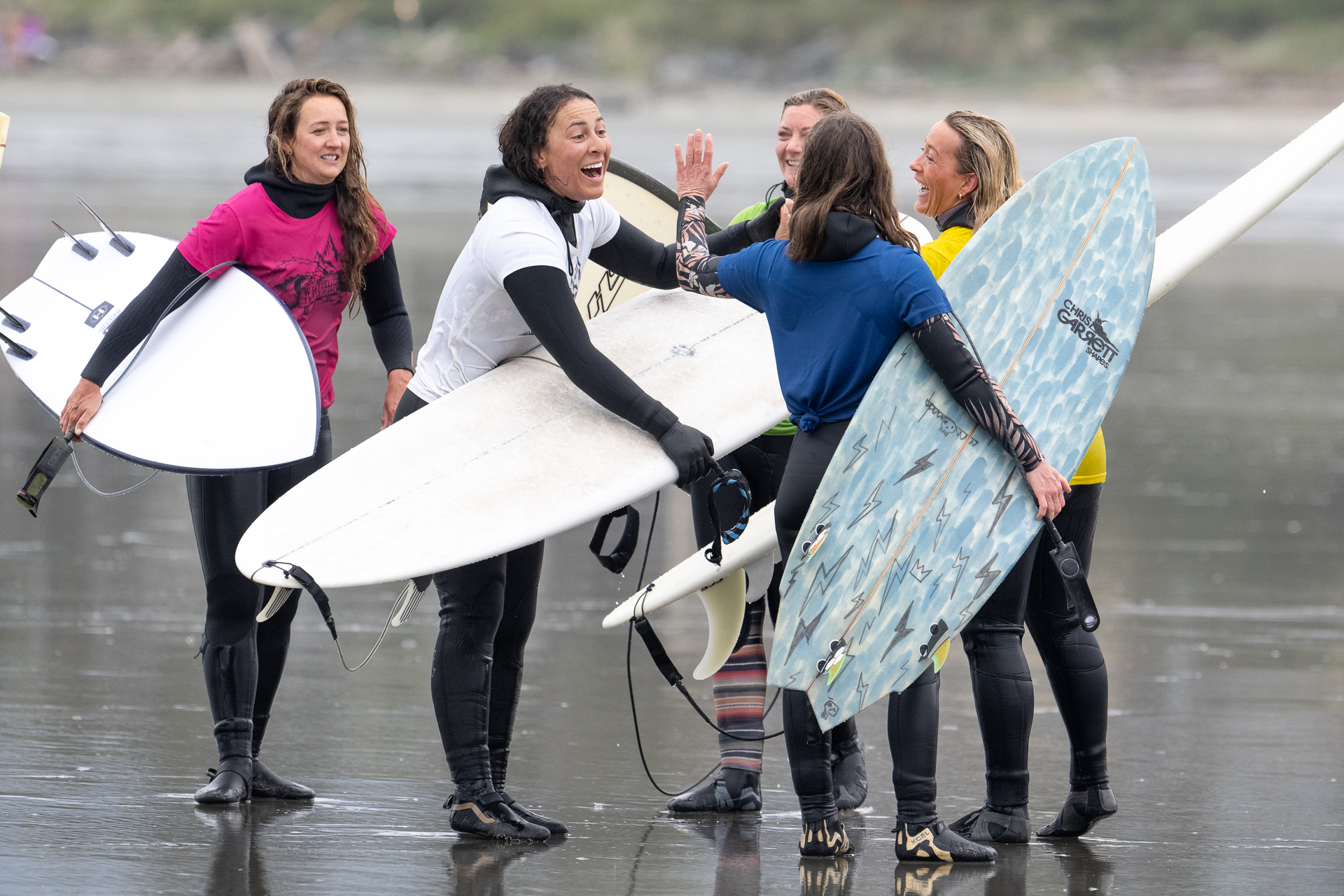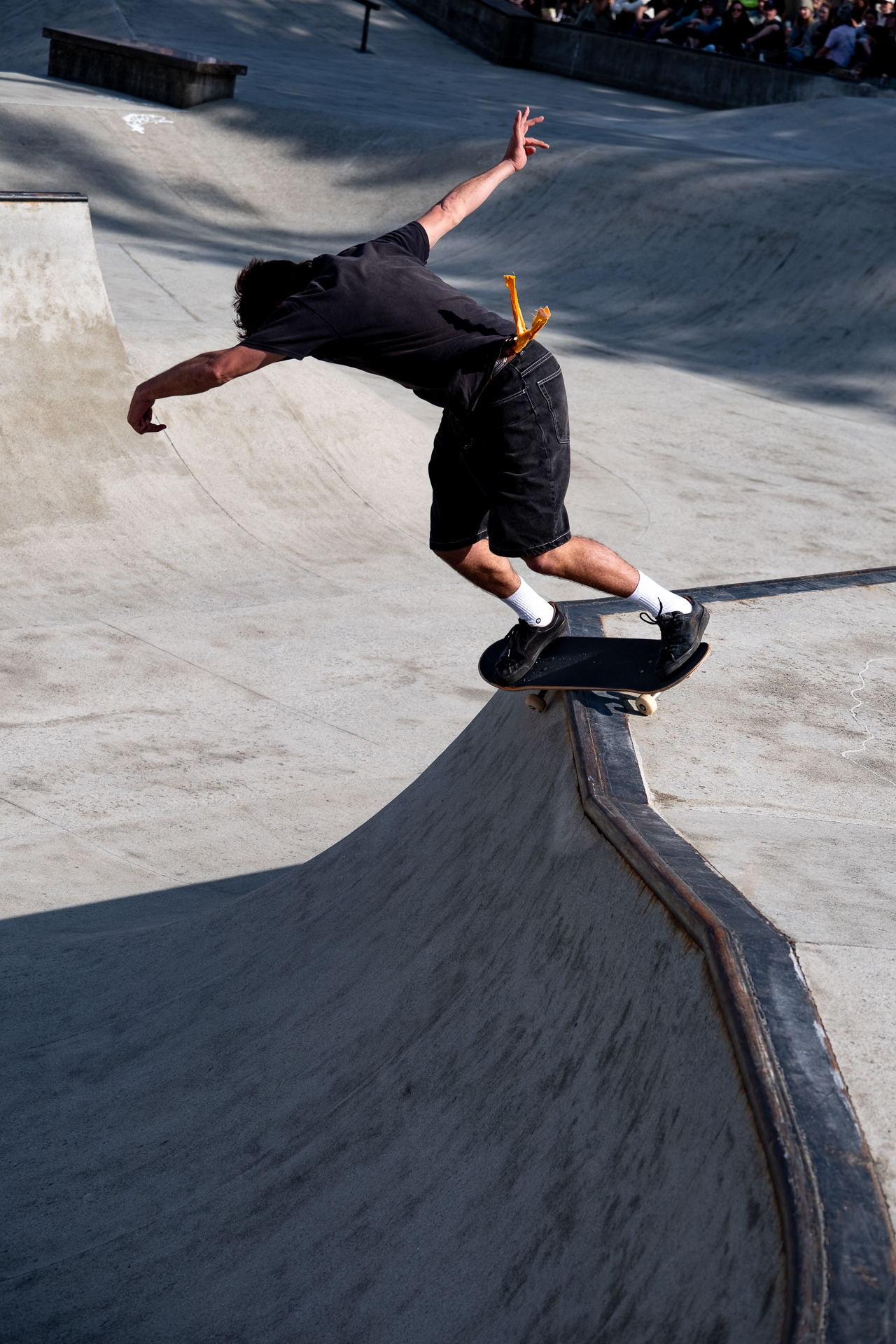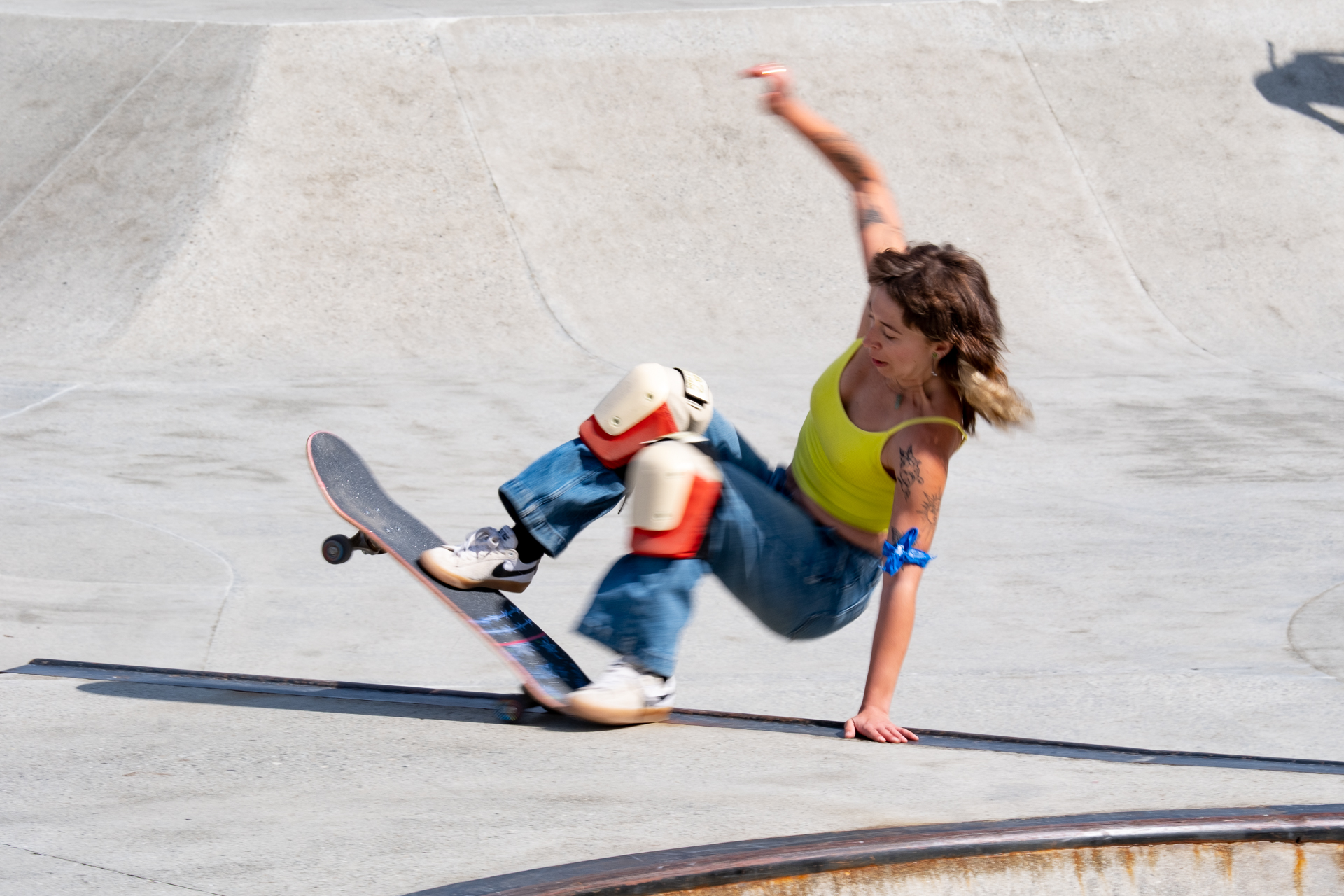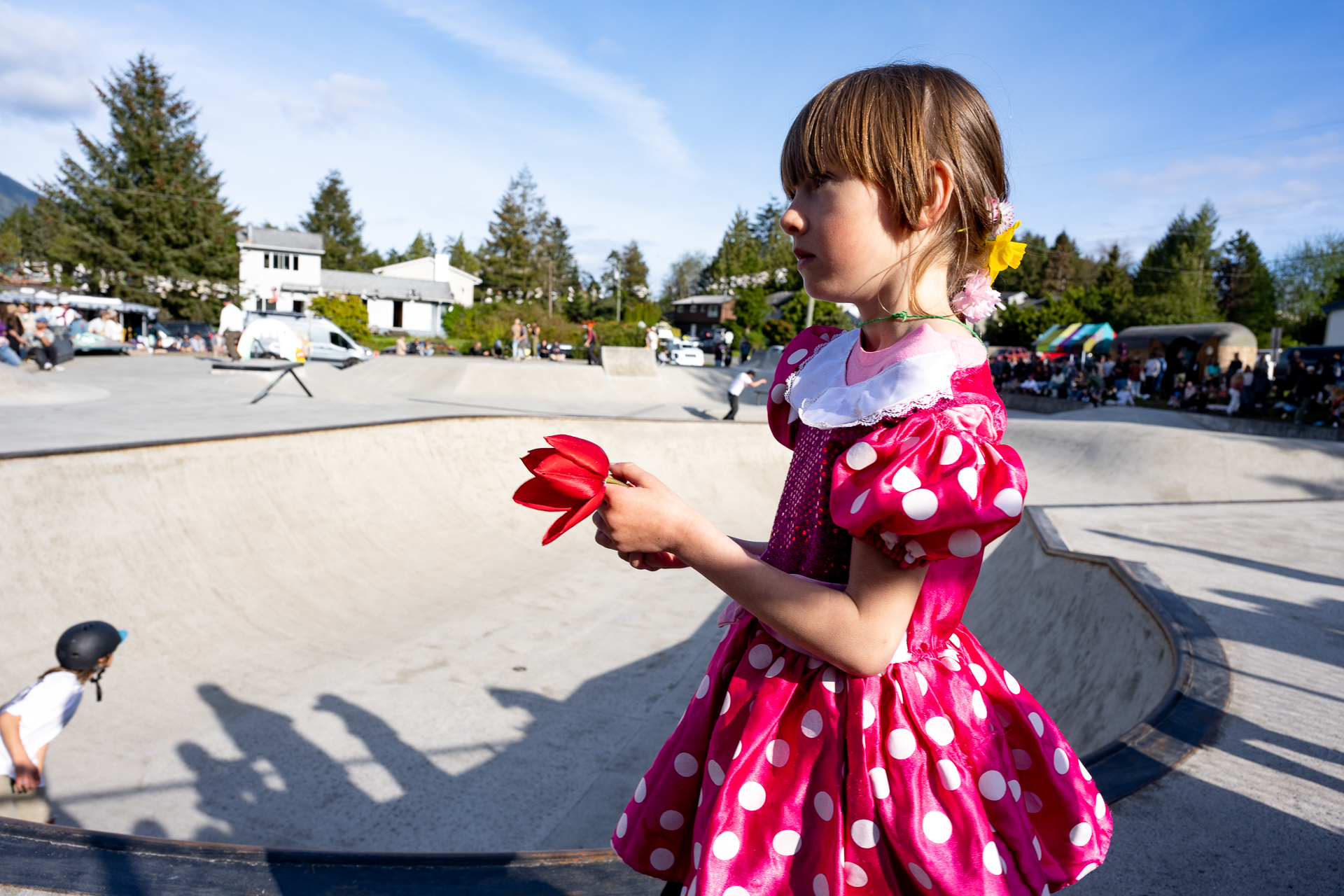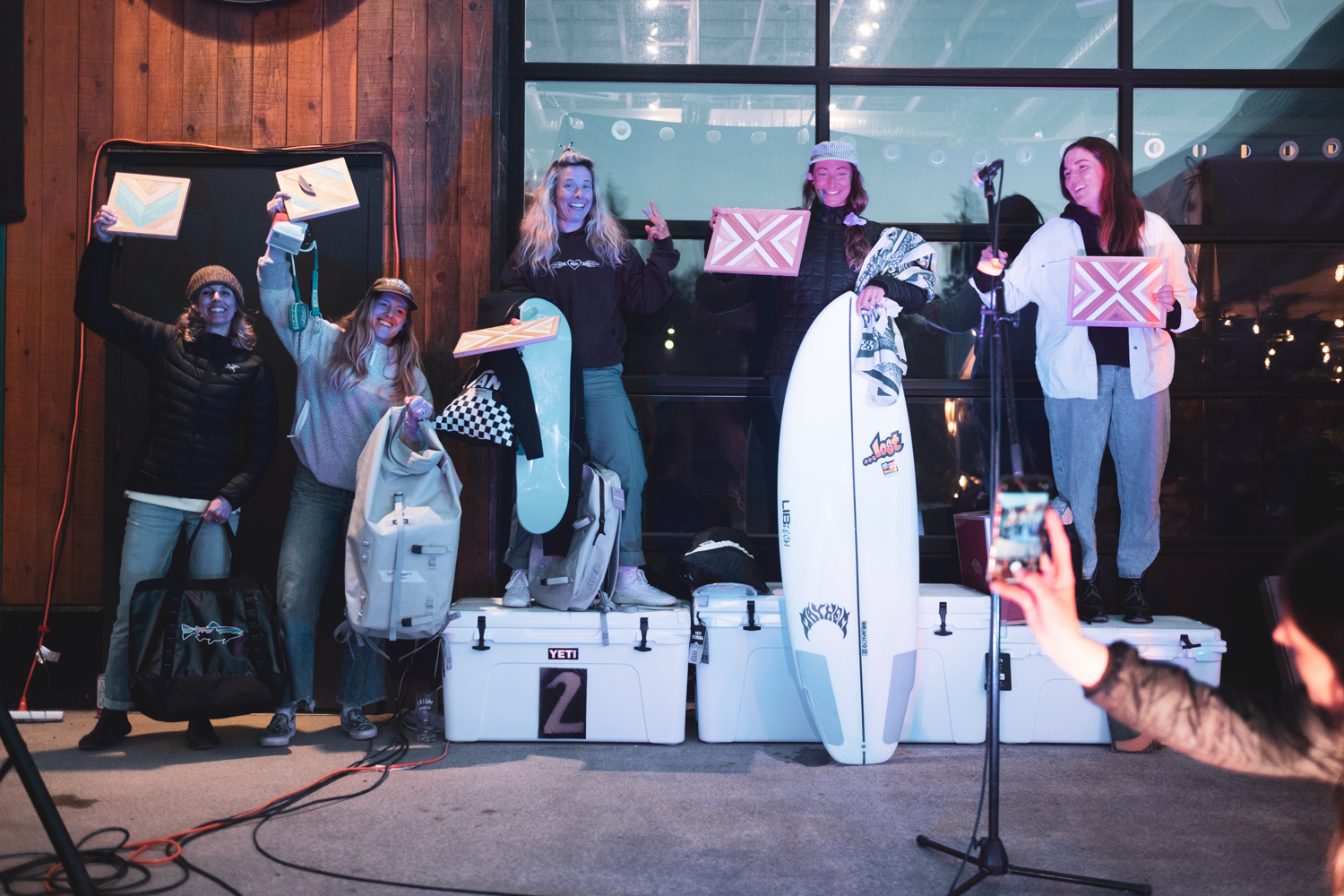Event
WestCoast Triple Plank 2023
Growing Sideways Culture on Vancouver Island
Mount Washington, for me, is as nostalgic as it gets. It’s where I first felt gravity take hold, on skis, at age 2; where I first turned sideways at age 12; where I logged my first 100-day season, washing dishes by night, riding during the day, sleeping five deep in a two-bedroom apartment up the hill above the lower parking lot. Indeed, driving up the Strathcona Parkway on British Columbia’s Vancouver Island, I’m always awash with fuzzy memories of my formative years.
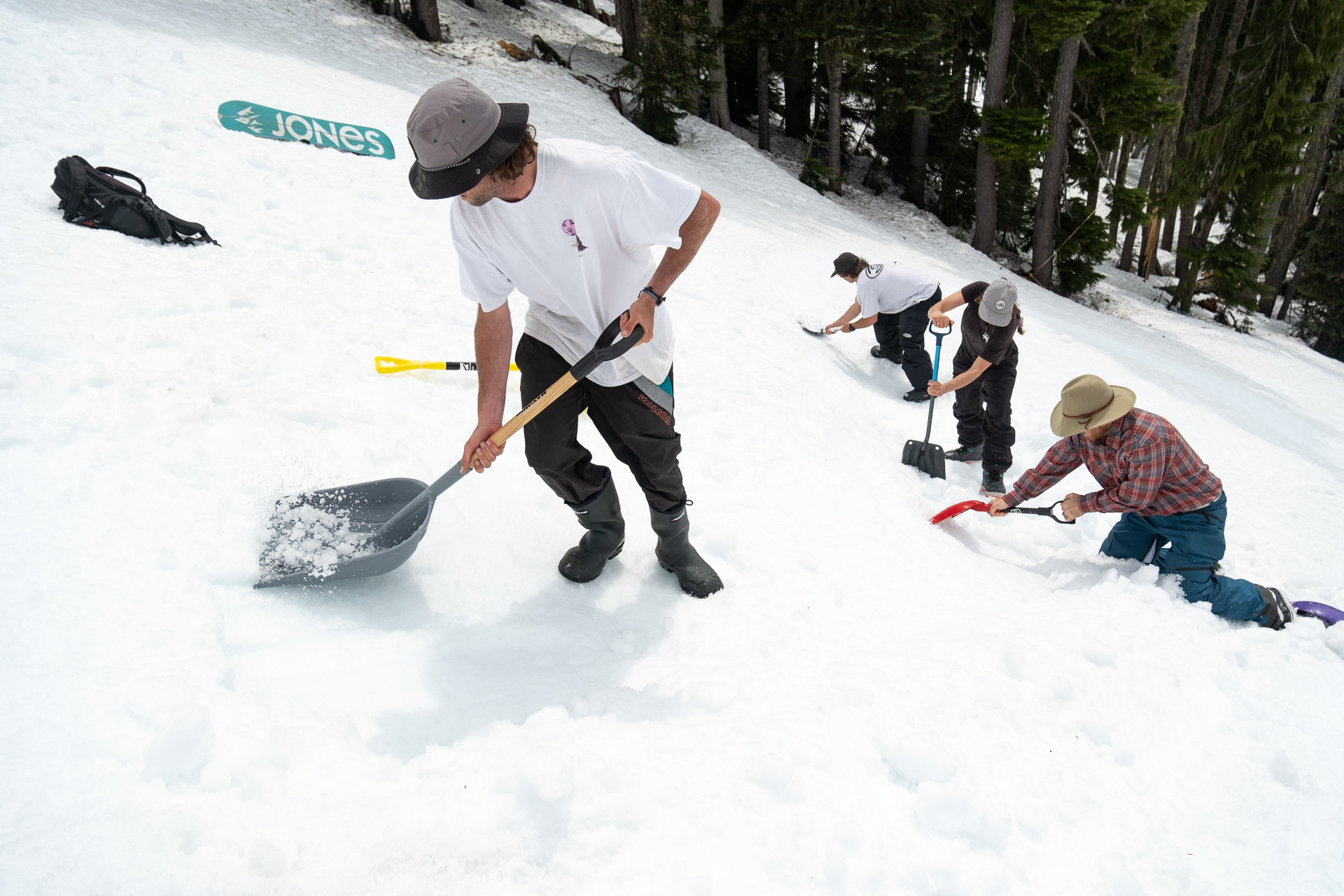
Dig then ride. Top to bottom: Timmy Taussig, Austen Sweetin, Mary Rand and Darin Towers put in the first berms; Bruce Johnson sends with 100 homies; Marie-France Roy leads a test lap. Photos 1-2: Colin Wiseman. Photo 3: Cory Grandfield.
Before I attended the WestCoast Triple Plank, I hadn’t returned to Mount Washington in nearly a decade. Now, it’s an annual pilgrimage that marks the transition from winter to summer, the start of a celebration of sideways culture that takes us from the east to the west side of the largest island on North America’s West Coast. And come to think of it, the Triple Plank is becoming nostalgic as well. Because there we gather with Island friends, folks I might only see at the Triple Plank, some who I only know from this brainchild of Marie-France Roy and Alicia Gilmour, now in its sixth year.
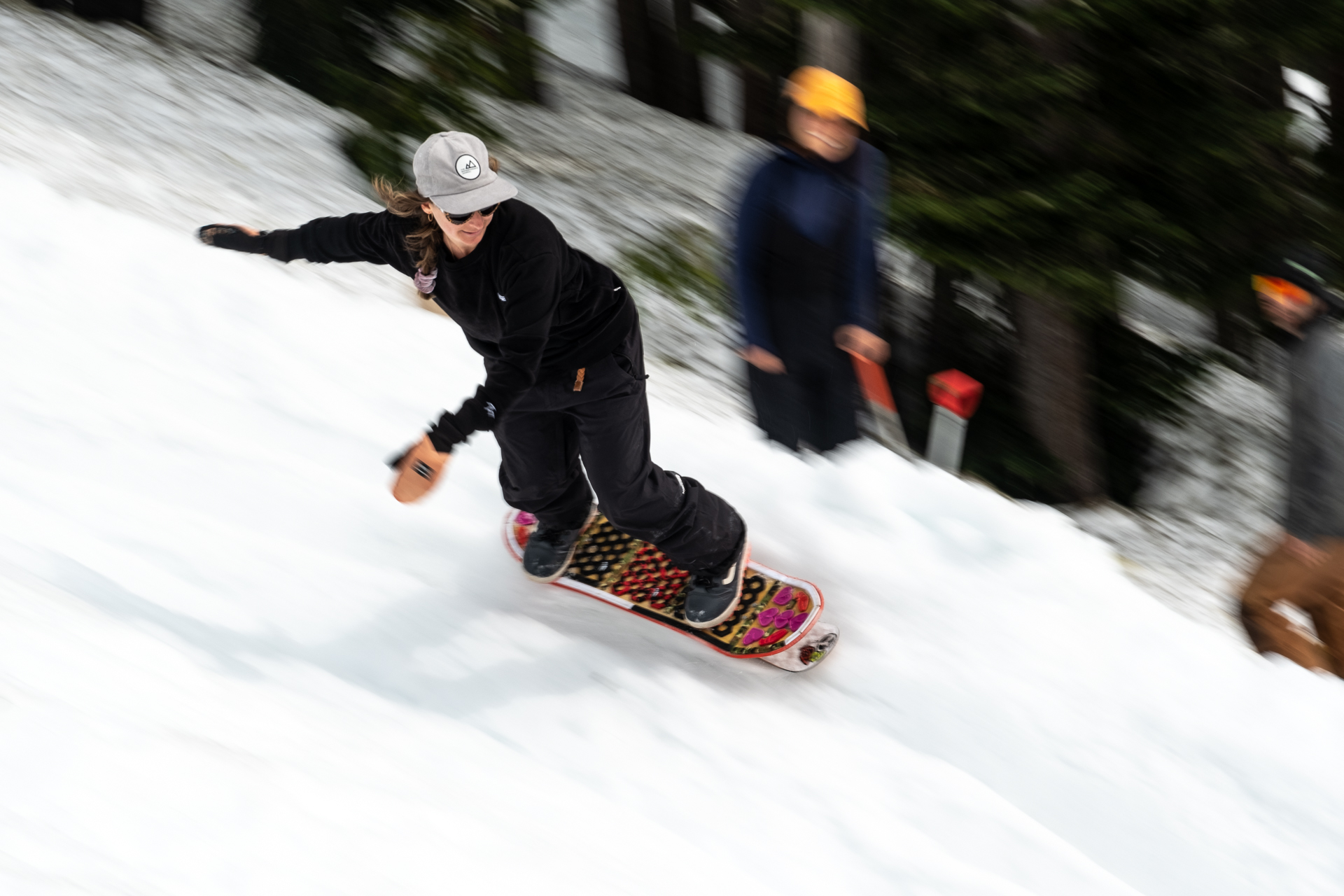
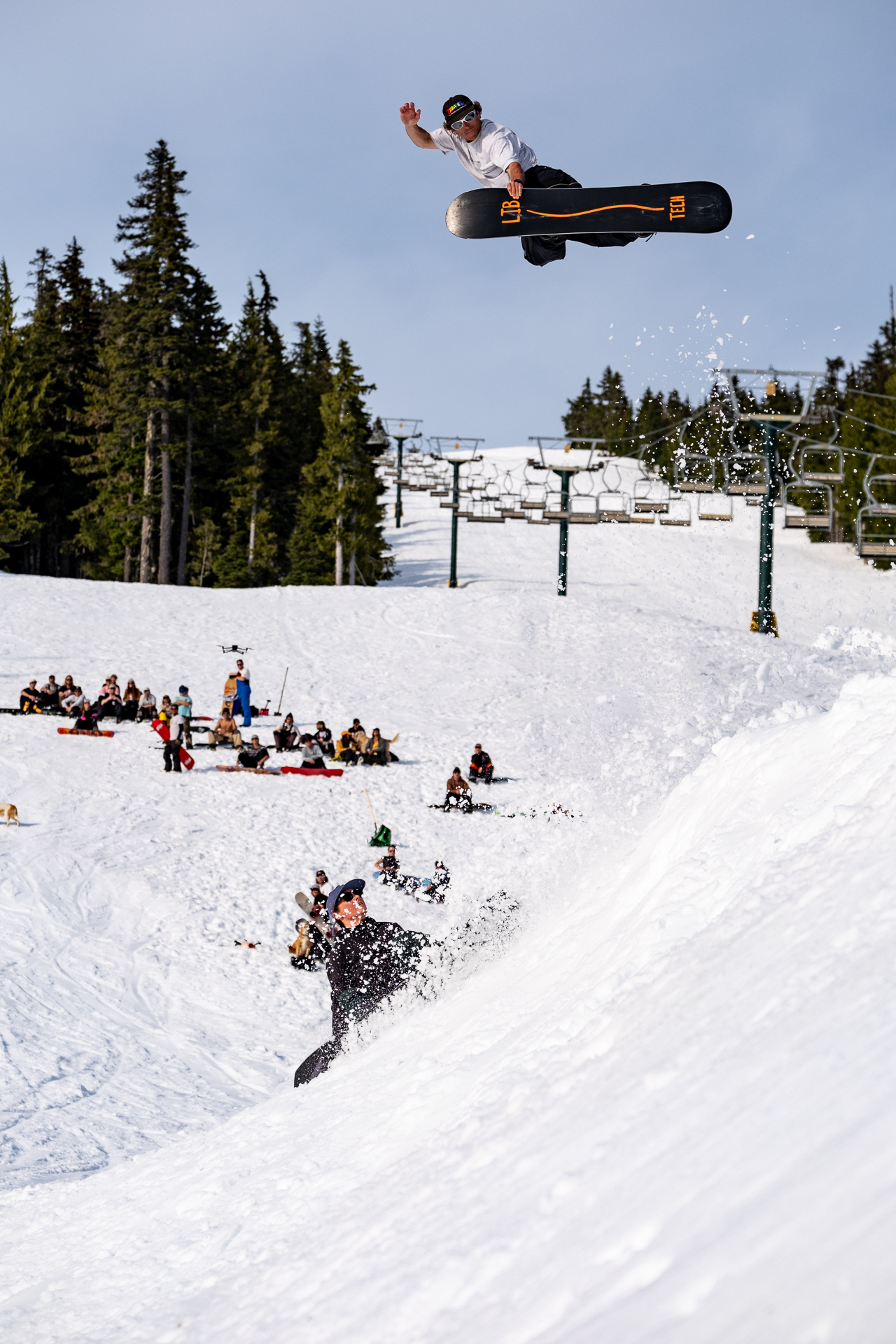
Dig day is the best day. Mary Rand on a snowskate lap; Austen Sweetin and Robin Van Gyn; Aari Howarth, stalefish. Photos: Colin Wiseman.
Triple Plank has grown, a lot. A decidedly loose affair, it begins with a hand-dug banked slalom up at Mount Washington. There’s a dig day, then a race day. Hot take: dig day is the best day of the whole event. With help from a snowcat and a growing mass of triple plankers, shovels in hand, a 45-second-ish course materializes in the span of eight hours. Shoveling alongside dozens of fellow boarders, you get to know one another, quick. There’s nothing like building a berm to make friends.
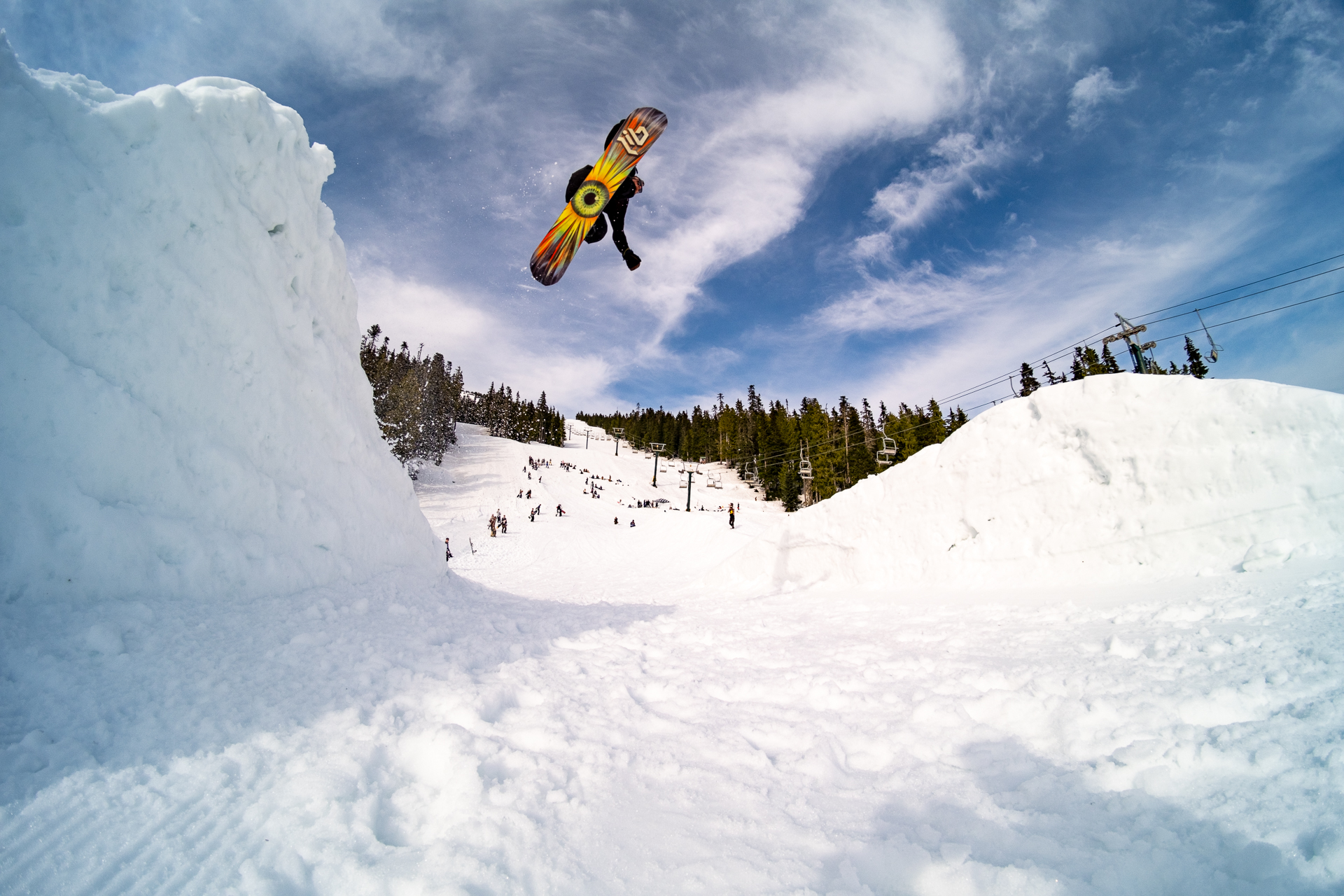
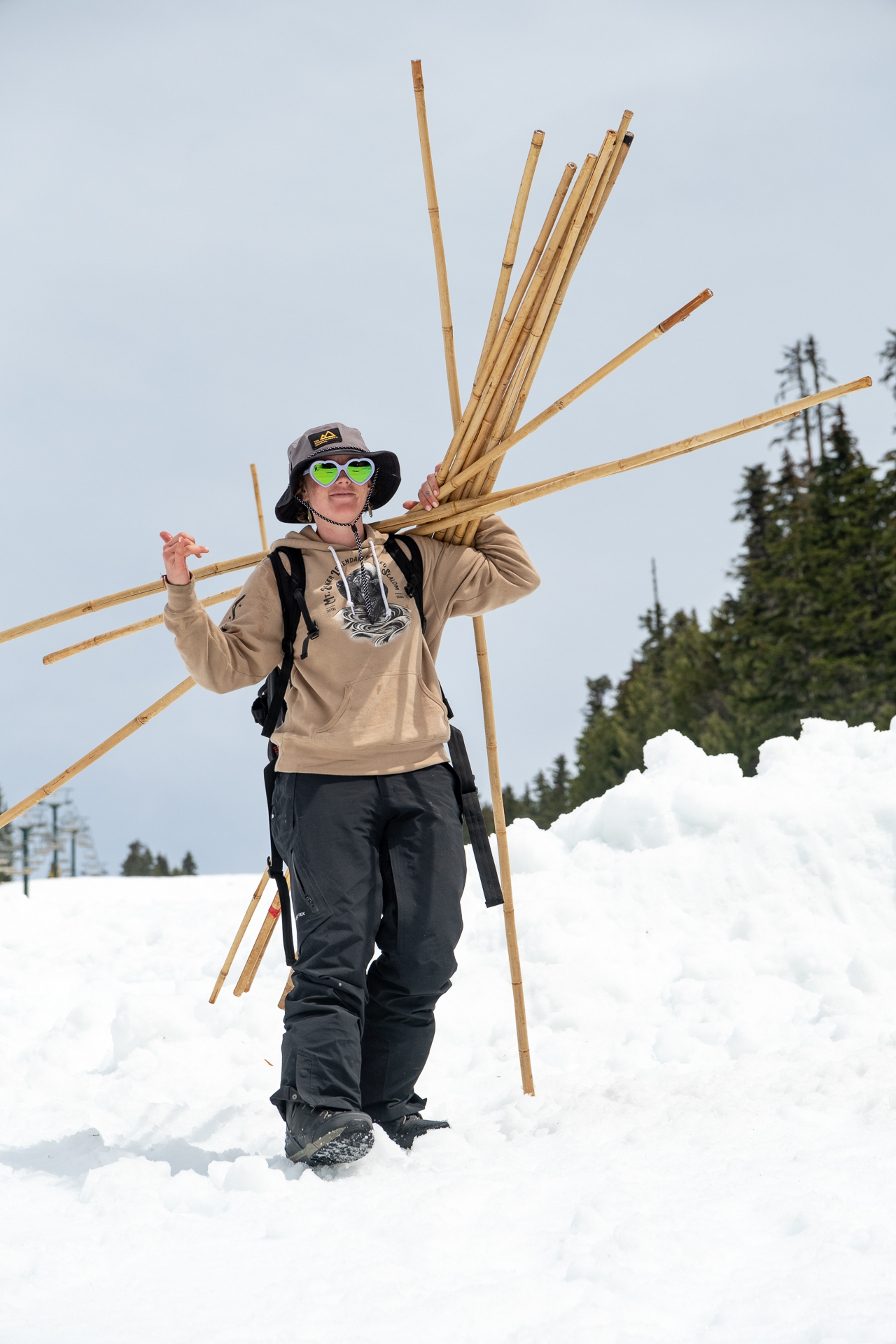
Mac Smyth finds the gap; Zoe Vernon setting gates; event co-founder Alicia Gilmour stoking with a volunteer from the Mount Washington Ski Patrol. Photos: Colin Wiseman.
This year, the course was a little more user-friendly than years past, but it still had a few airs and decidedly tight turns. The best addition for 2023 was a terrain park, of sorts—a hip jump, table, and QP. Hike it to your heart’s content. There, under the sun on the second weekend of May, we found community. Surfers from Tofino mixed with shredders from Whistler and Washington state and nearer afield, hiking, hucking, heckling. With aid from Natalie Langmann as a new event producer, Marie even got in on the action. Yes, the Triple Plank found a new level of organization this year but kept its loose spirit, emblematic of the Island’s low key but hard charging vibe.
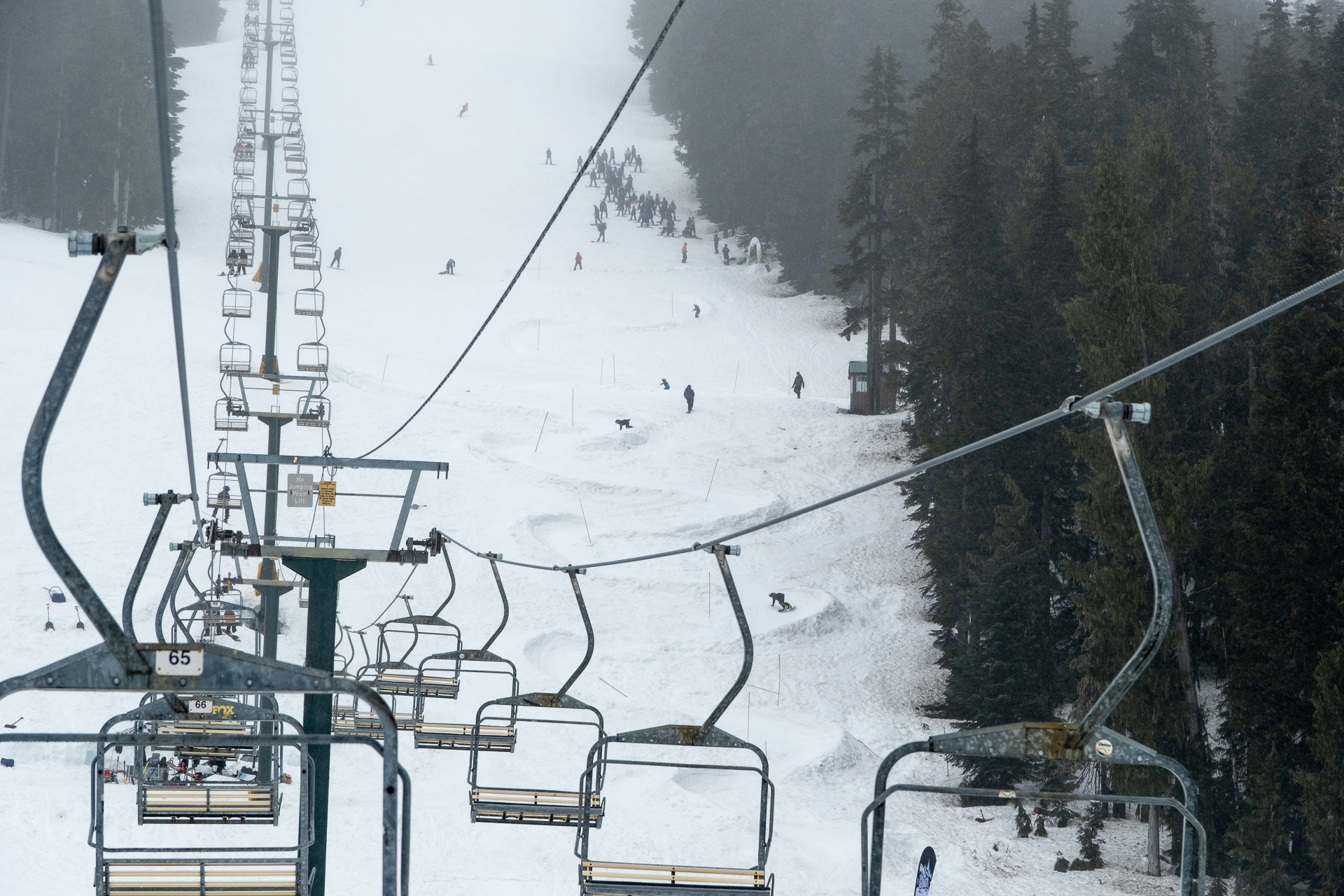
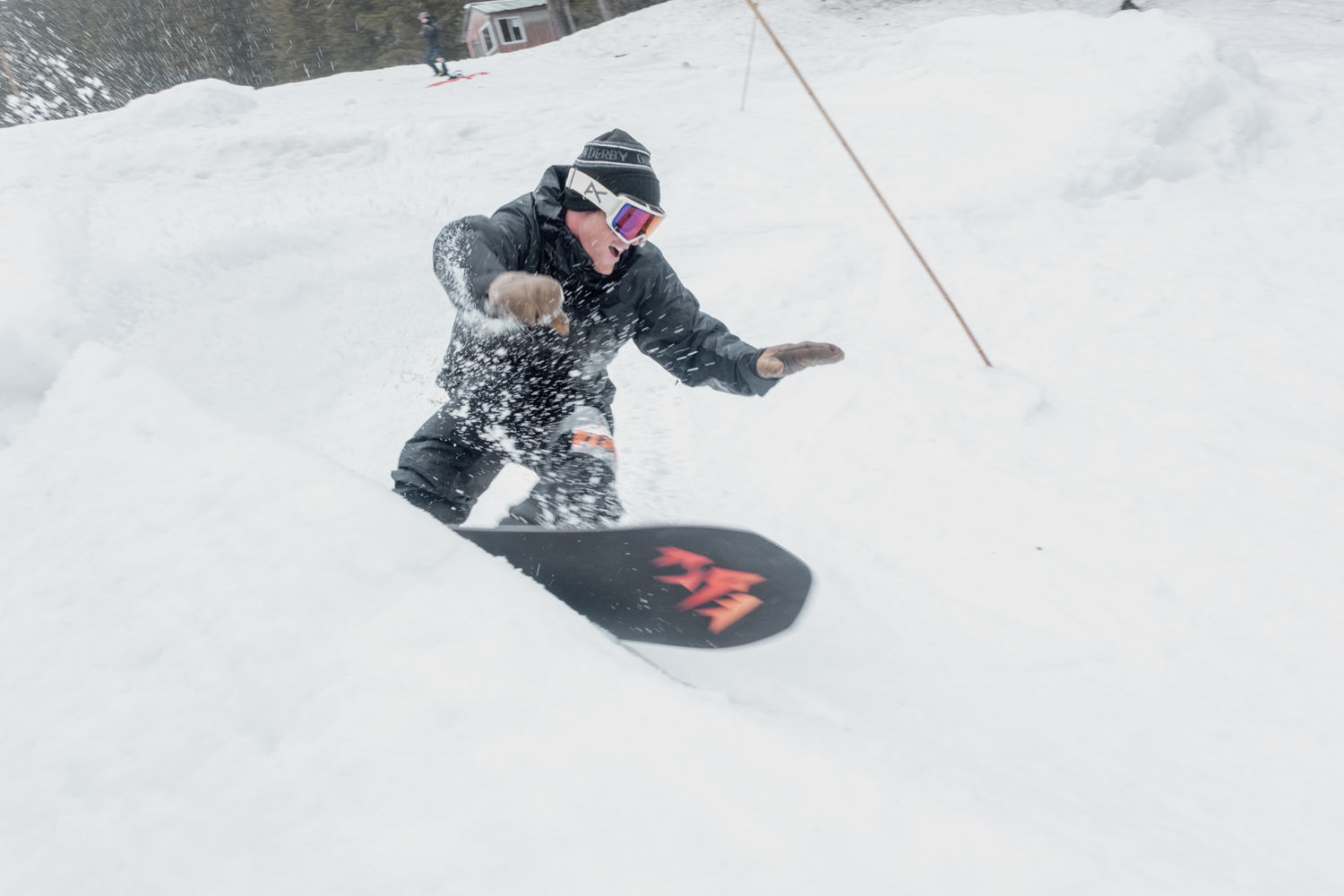
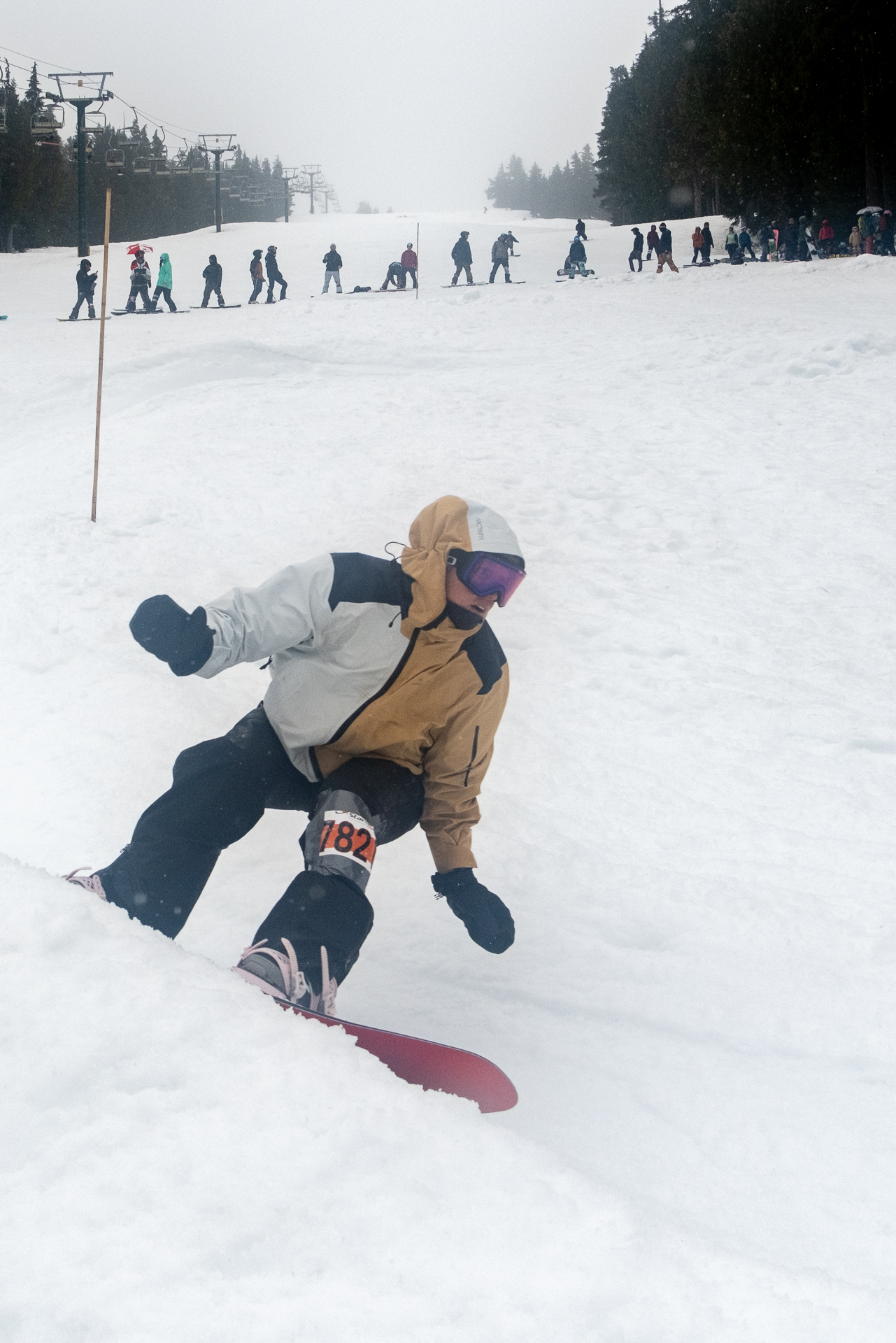
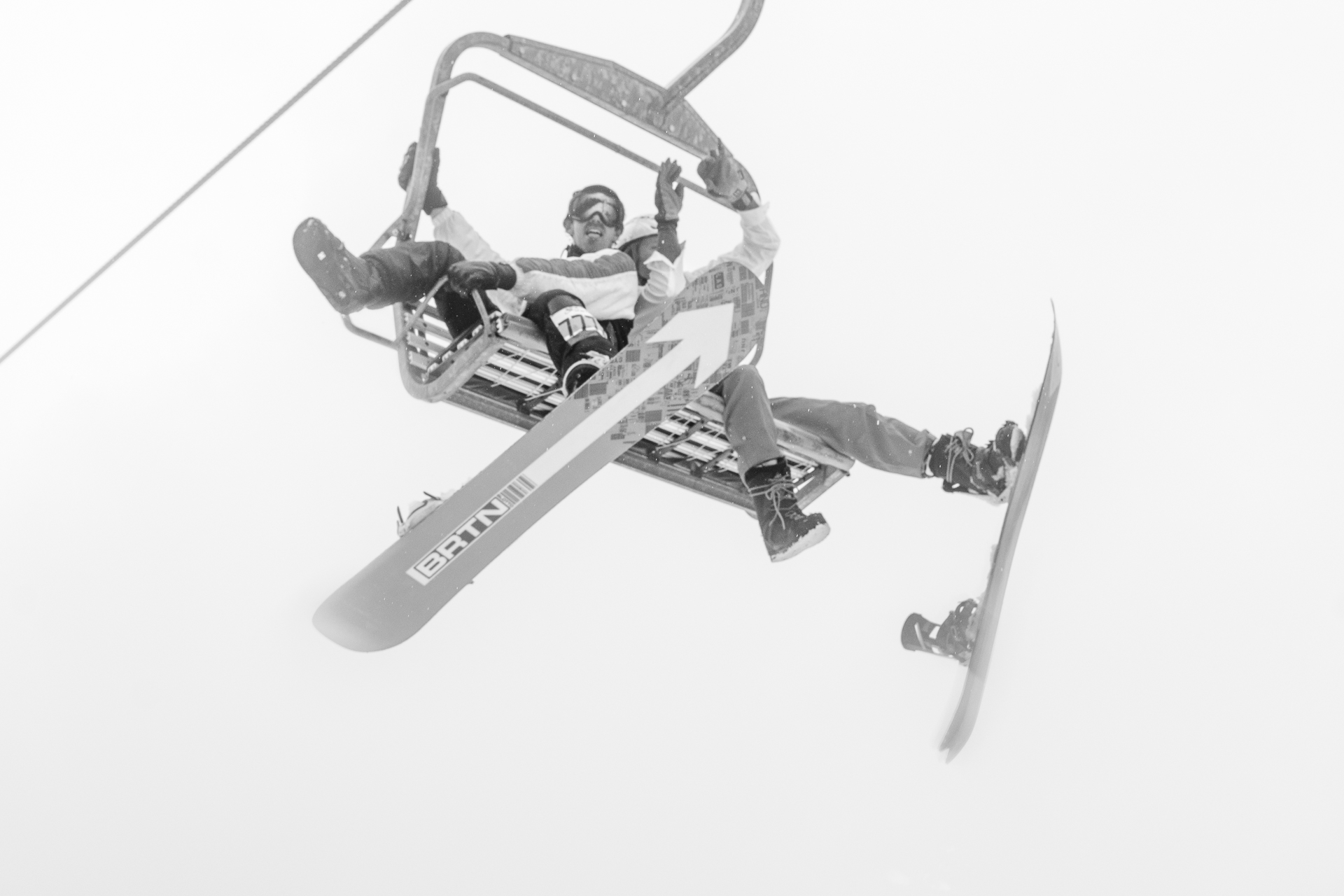
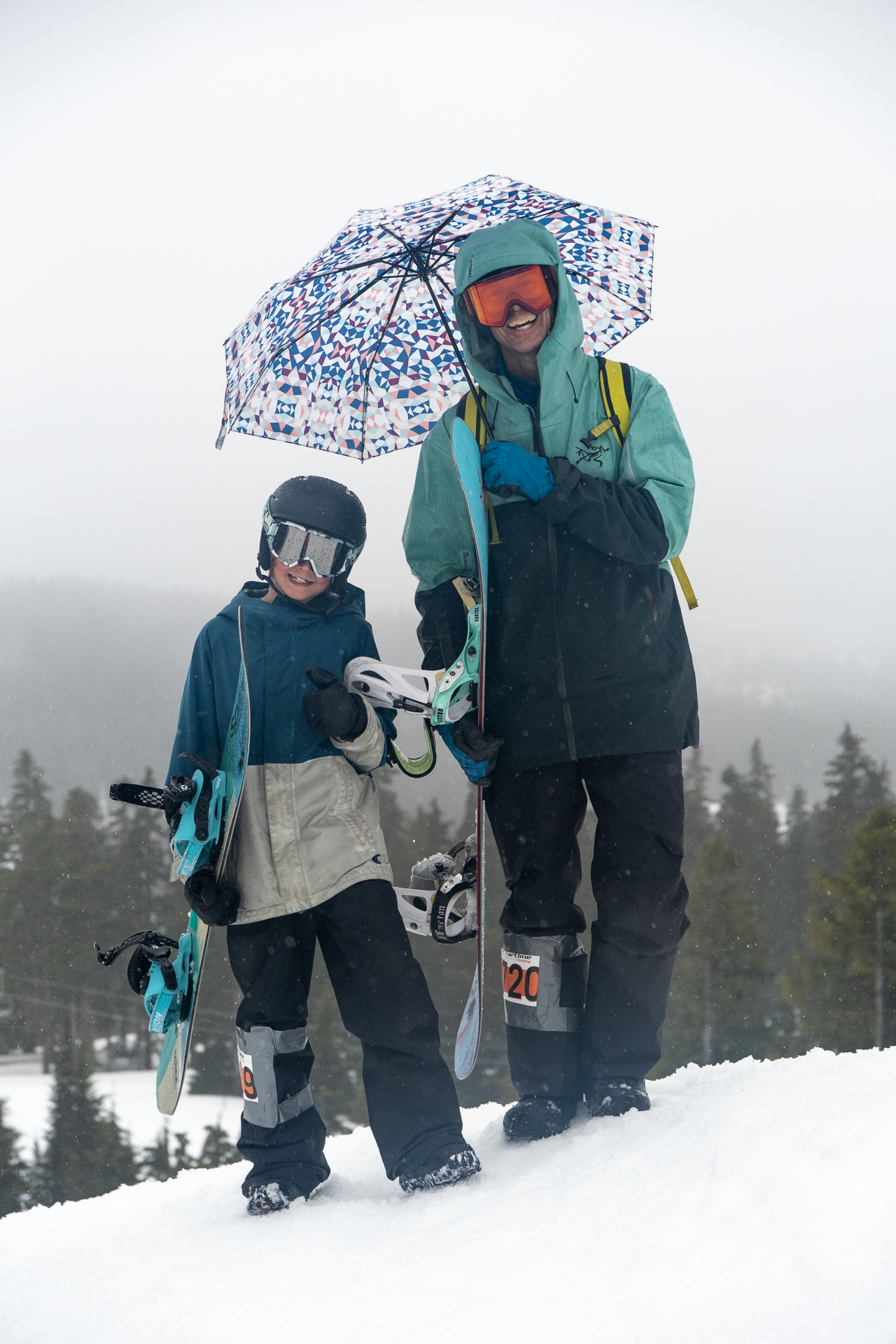
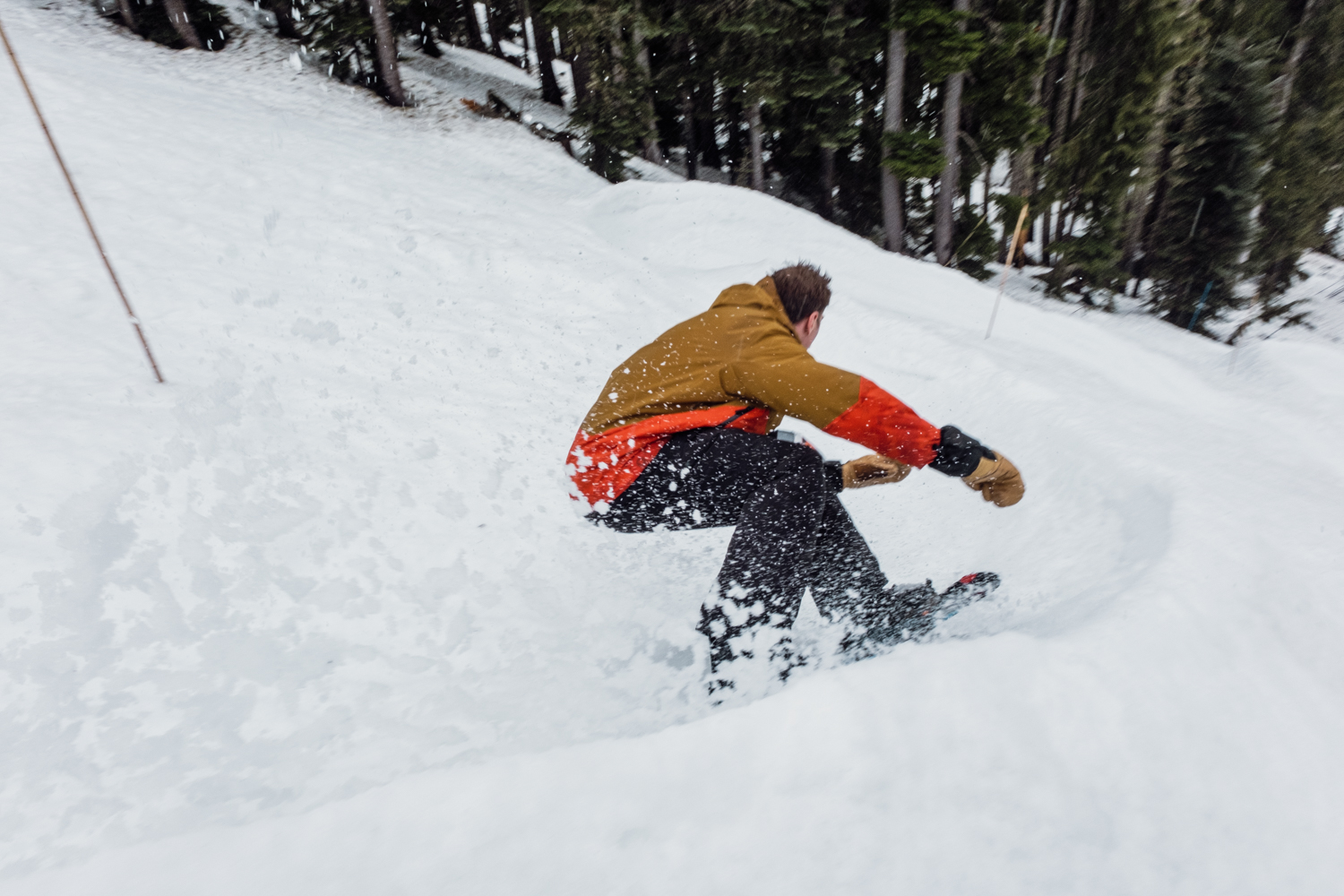
View from the yellow chair; Harry Kearney; Spencer O’Brien; Justin Taylor Smith and Jesse Blaine; Xavier and Justin Lamoureux; emcee Colin D. Watt; Mary Rand. Photos: Colin Wiseman and Cory Grandfield.
On race day it rained. But that didn’t slow the party. Mount Washington graciously ran the yellow chair (a.k.a. the Whiskey Jack), an aging but still functional piece of my personal snowboard history. From ages 2-20, I probably took more laps on that three-seater than any other chairlift. Volunteers bumped us on for the slow ride to the top, allowing for multiple laps to wring out your gloves and take a turn in the berms. A kicker session, led by the youth, materialized next to the course. The mountain even opened the lodge for awards, allowing for a brief dry-out before it was wheels up and pointing it west, 3-ish hours to Tofino.
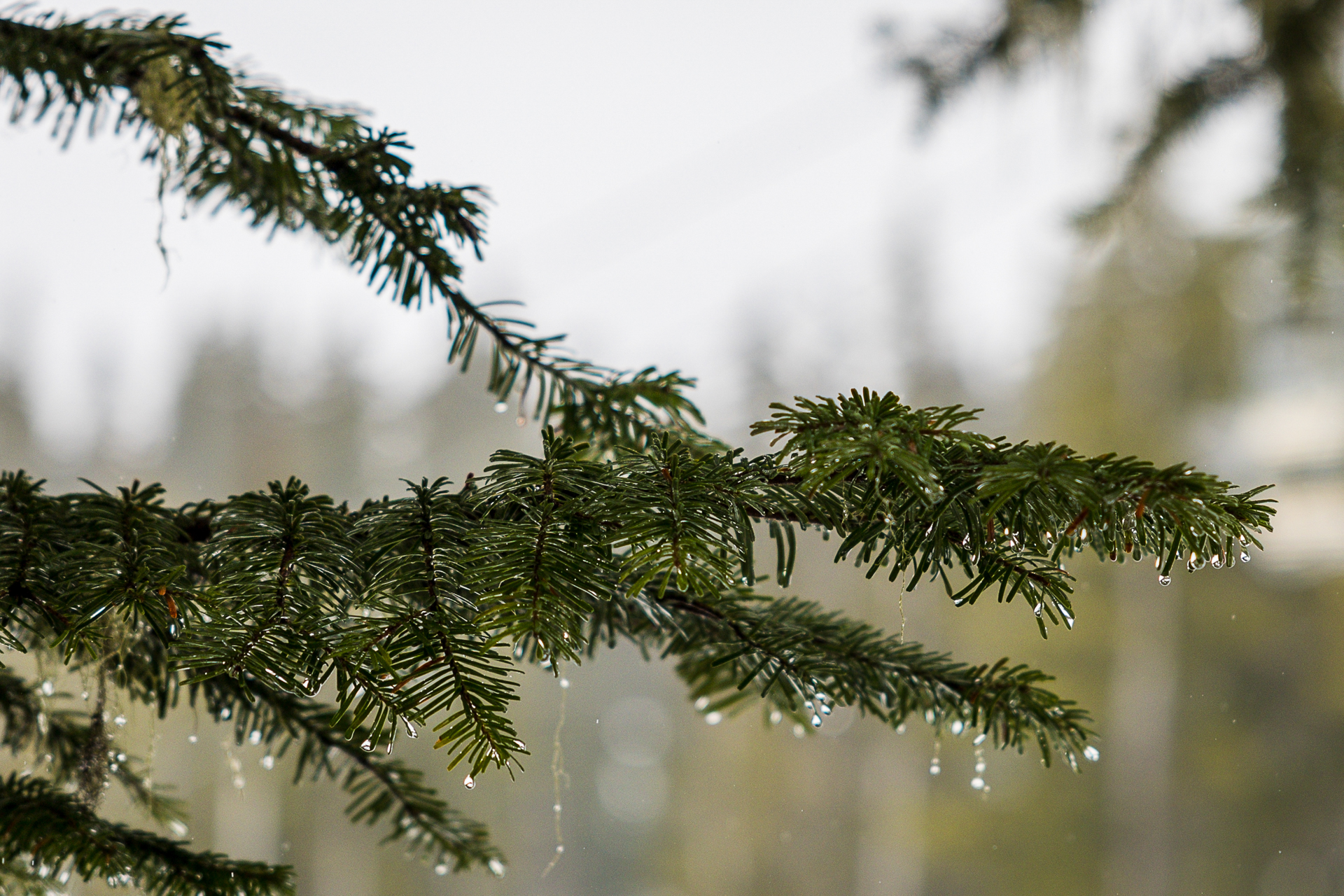
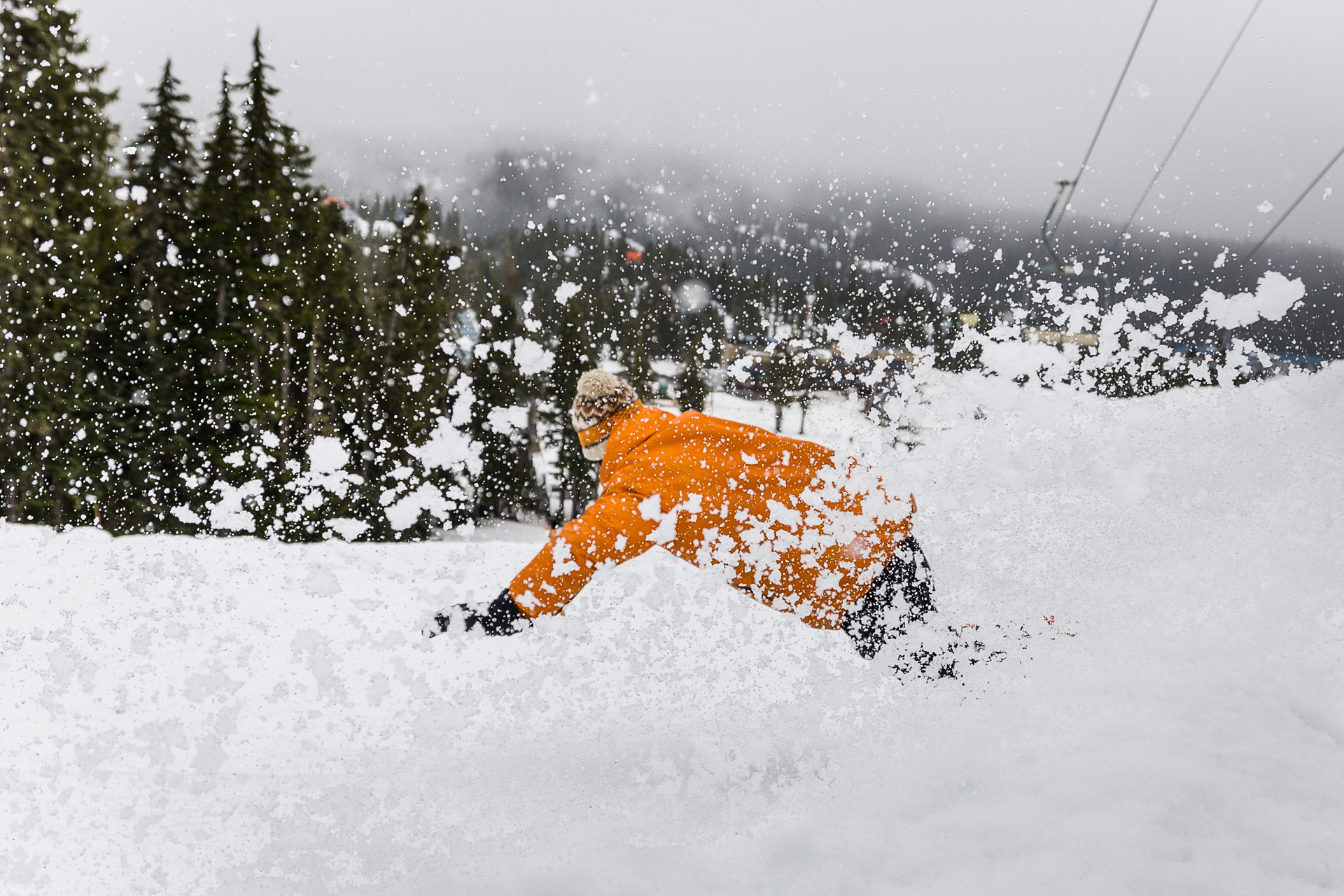
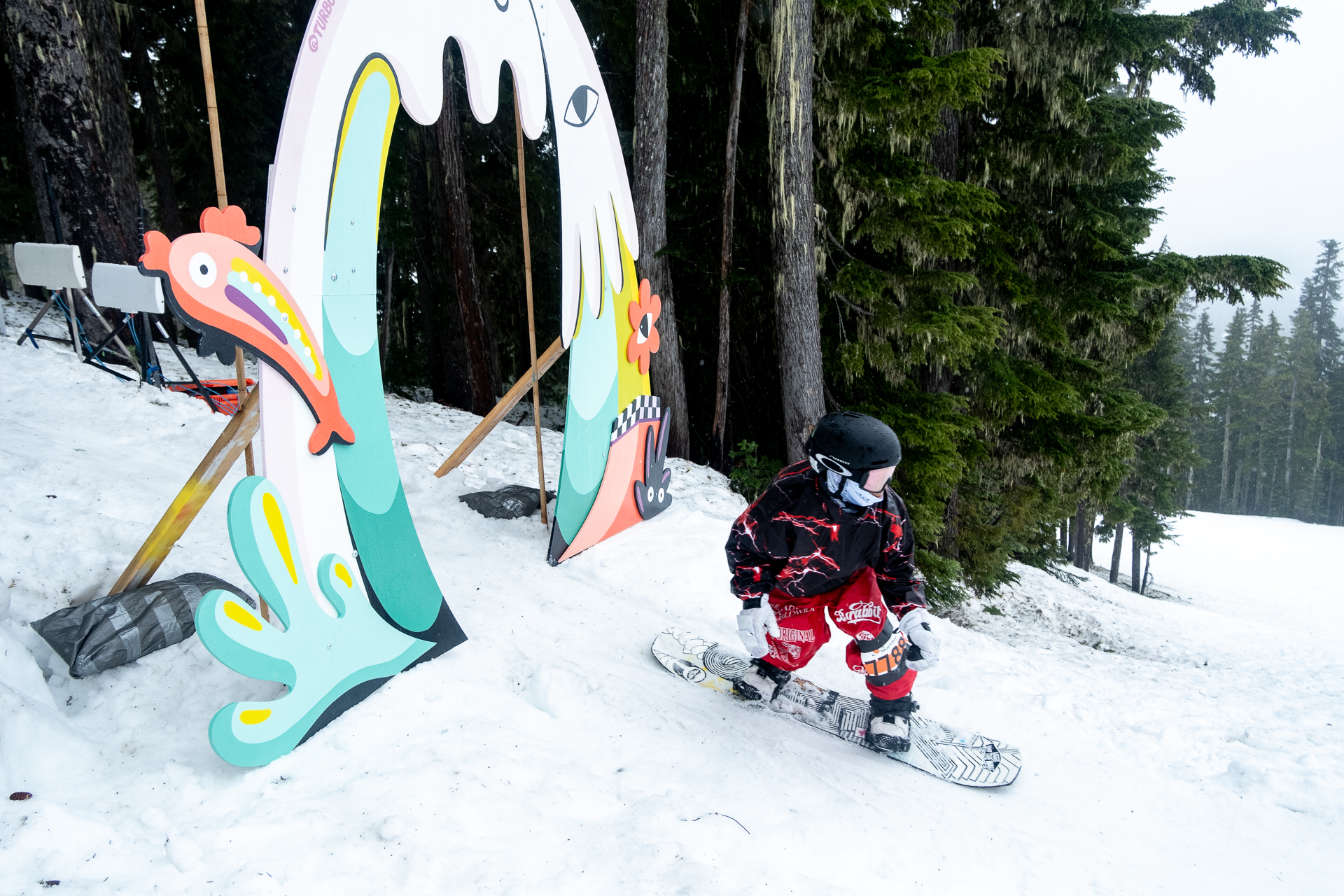
Drizzle and spray. Photos: Sarah Kempner. Kayne Gaces out of the start shack, created by Turbo Bambi Design; DCP, indy. Photos: Colin Wiseman. Samuel Currie, Canadiana. Photo: Cory Grandfield
More nostalgia: after spending that 100-day season in the dish pit up at Mount Washington I moved west to Tofino. It was already a growing center of Canadian tourism by then, but still held its fishing village charm. It still does, now, except the high-brow resorts vastly outnumber the low-budget options. Still, it’s wild. Unbroken wilderness and a winding, two-lane mountain road take you there. The beauty remains on the coast, where waves roll into the definitive Canadian center of surfing, and the de facto contest site at Cox Bay.
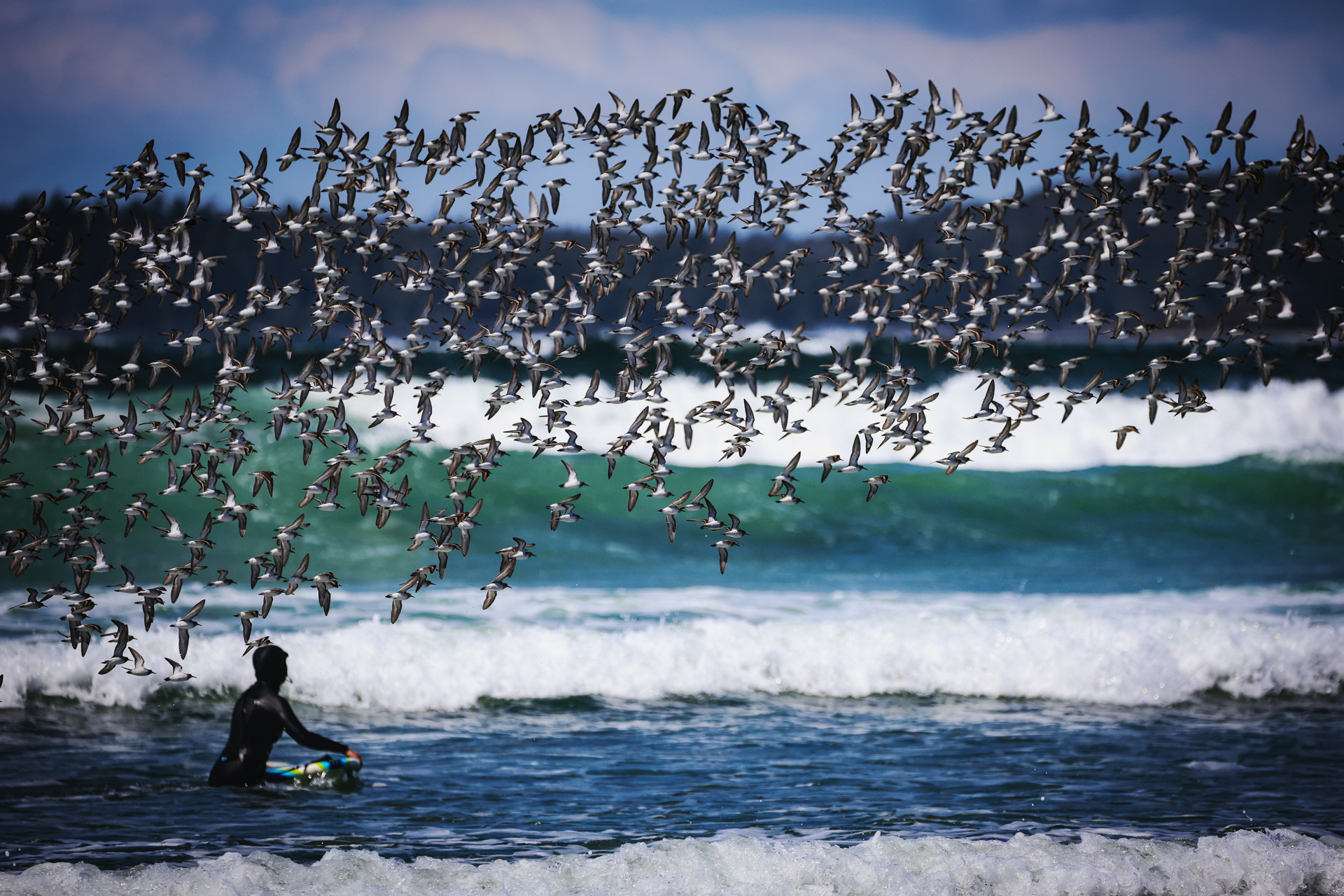
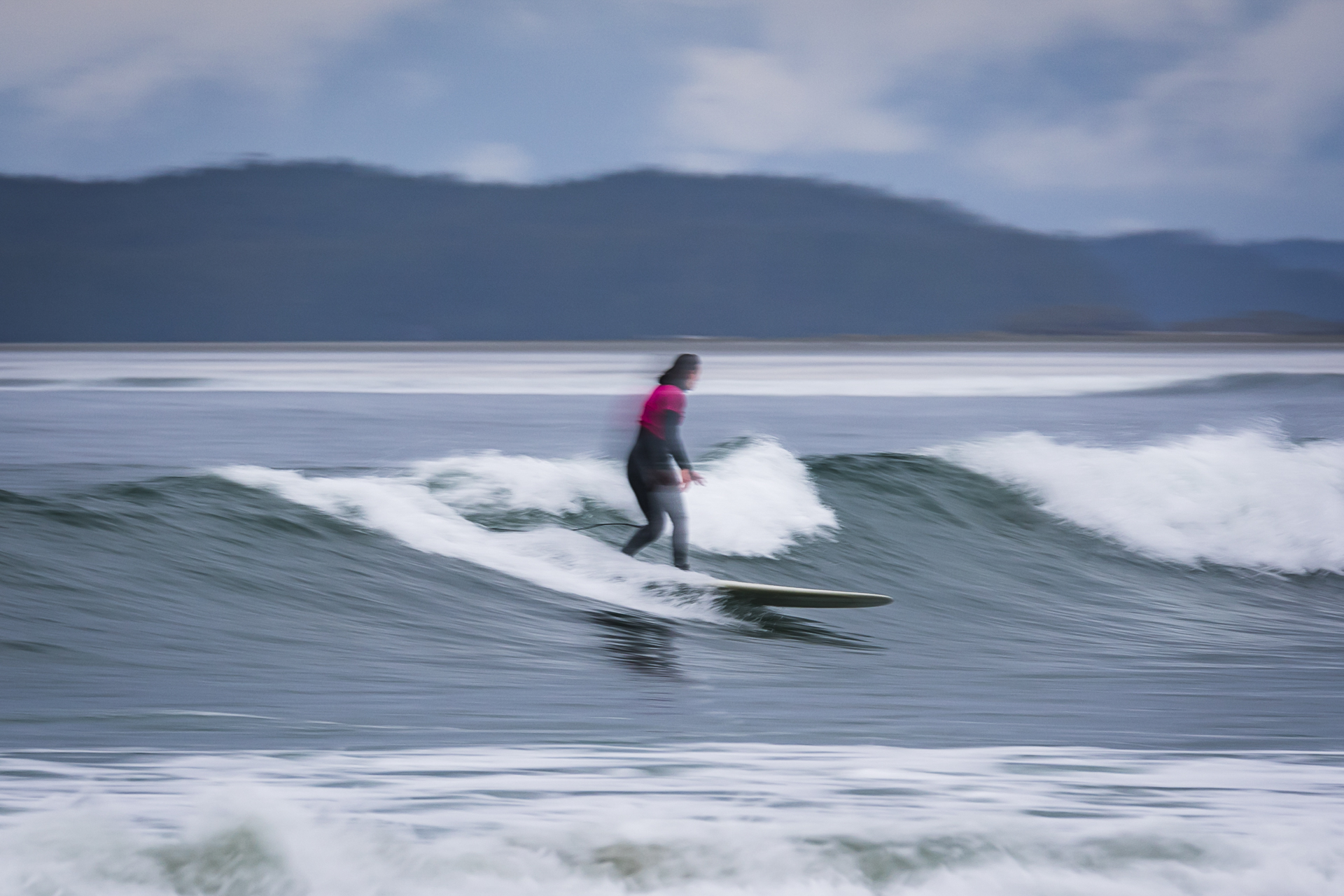
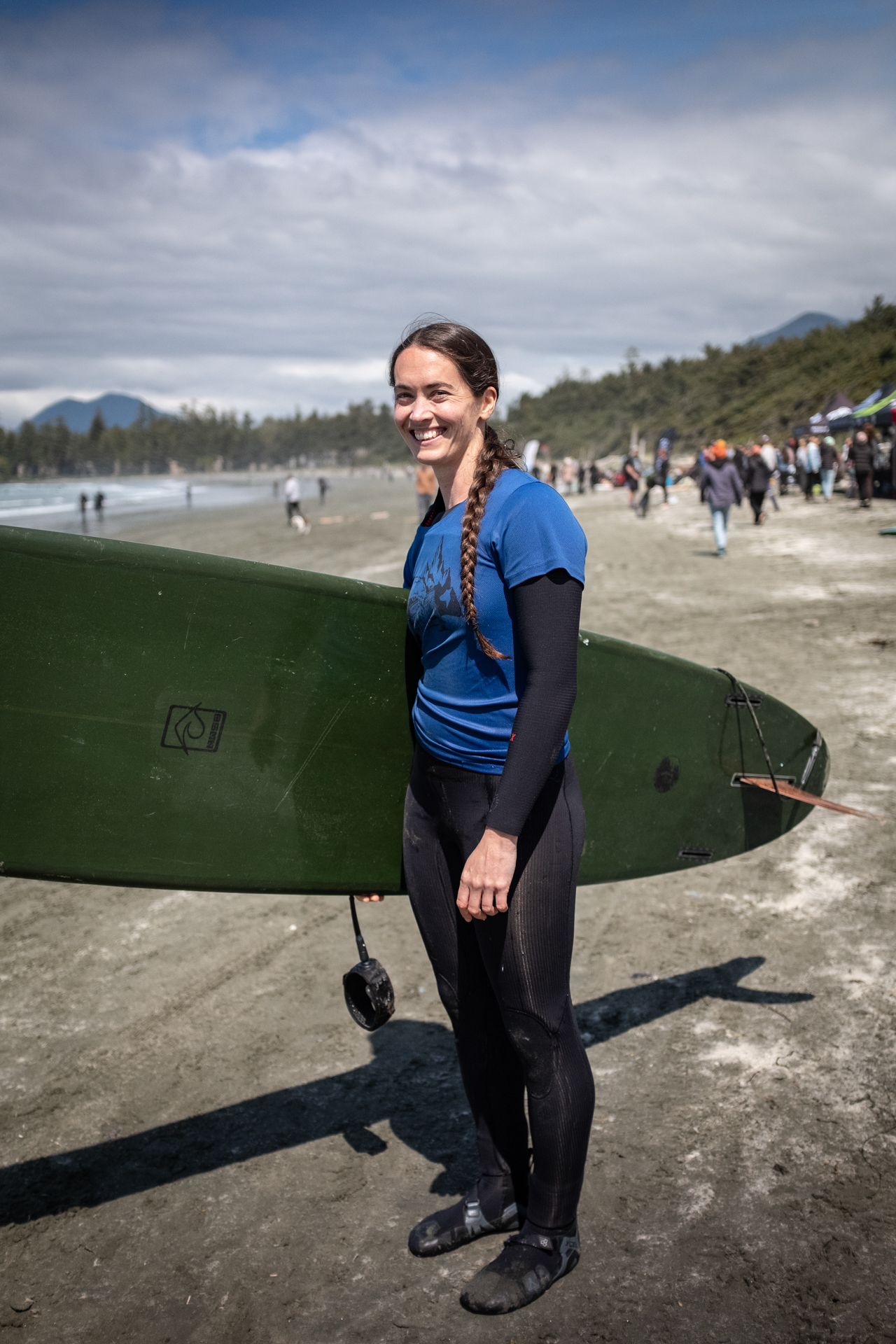
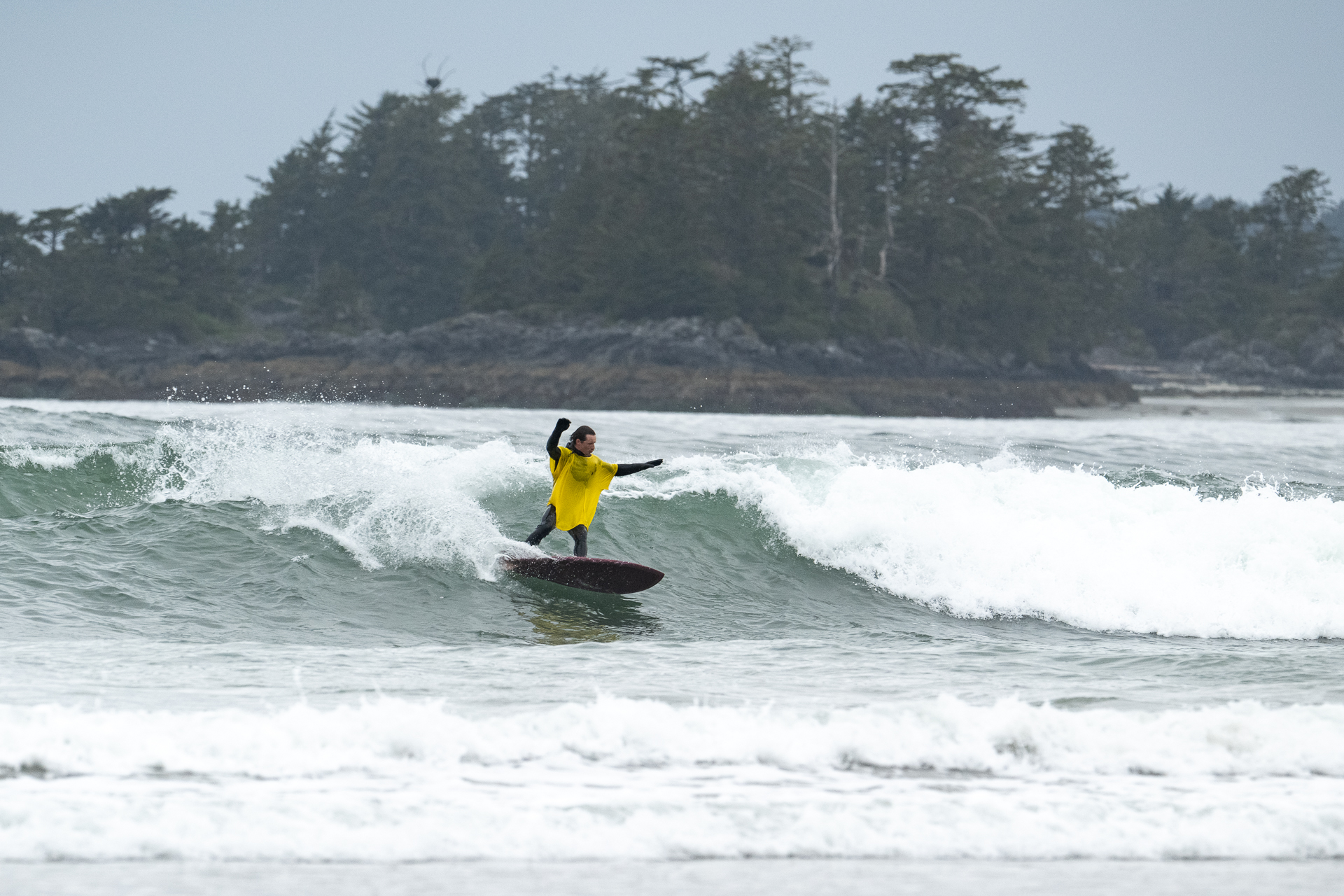
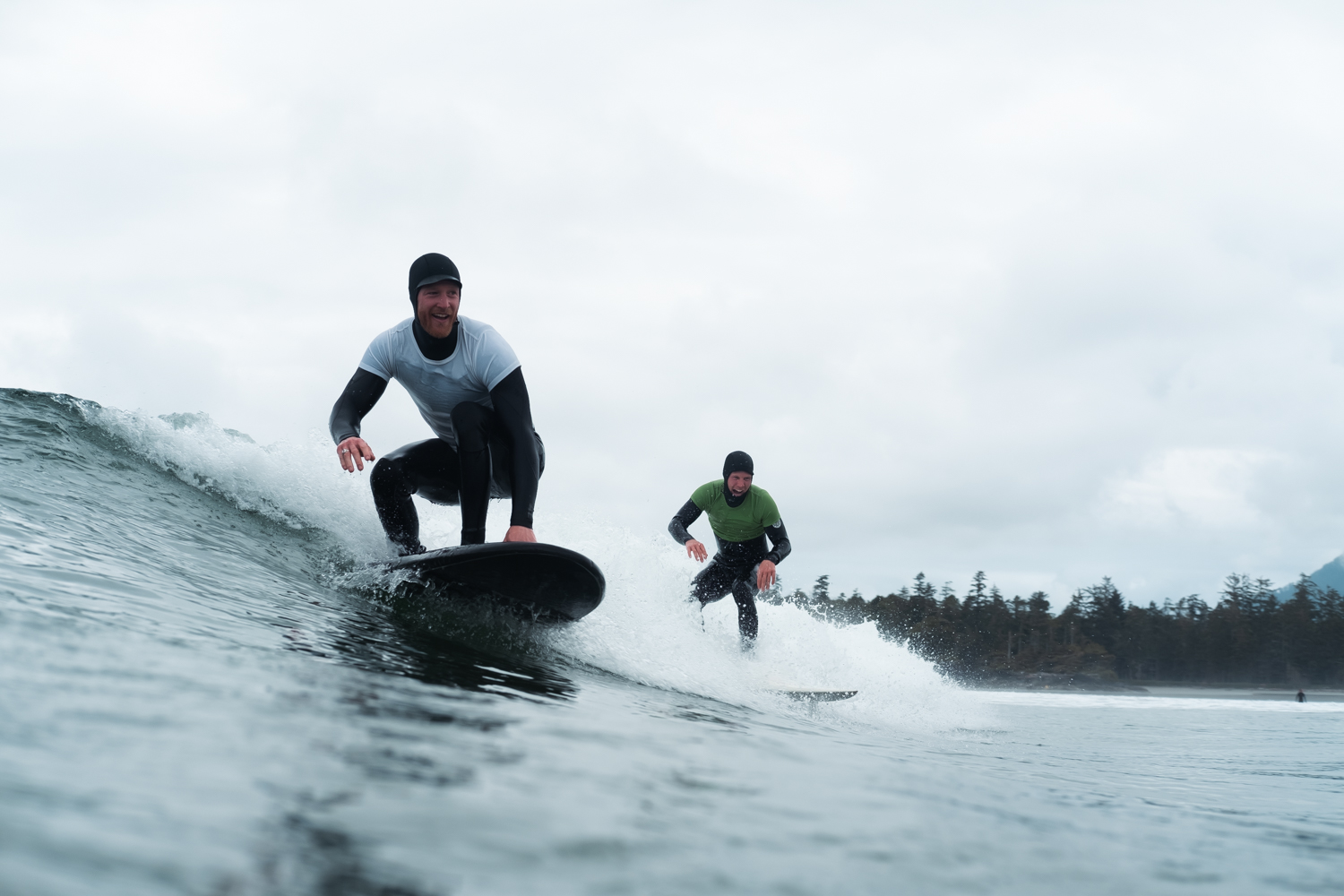
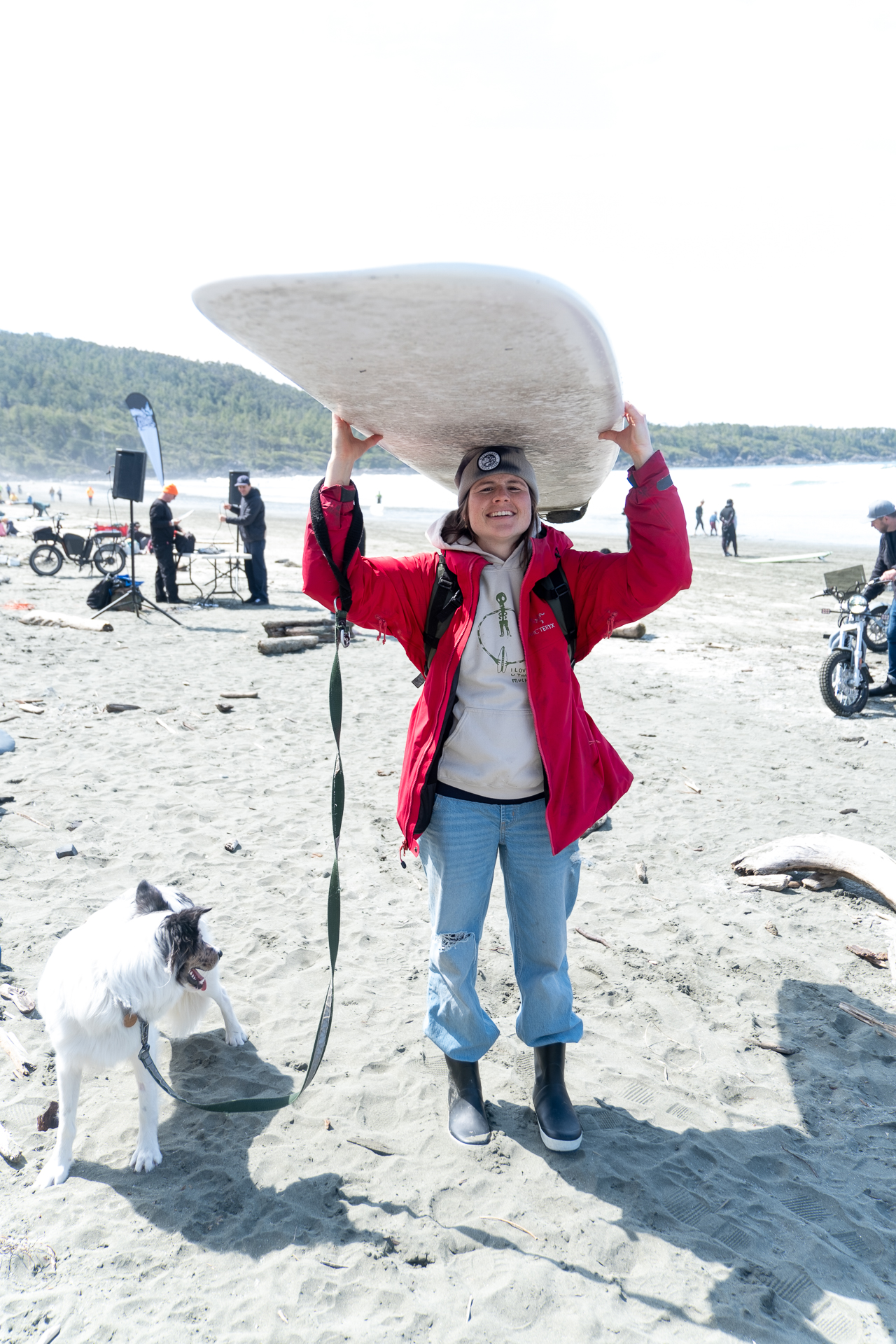
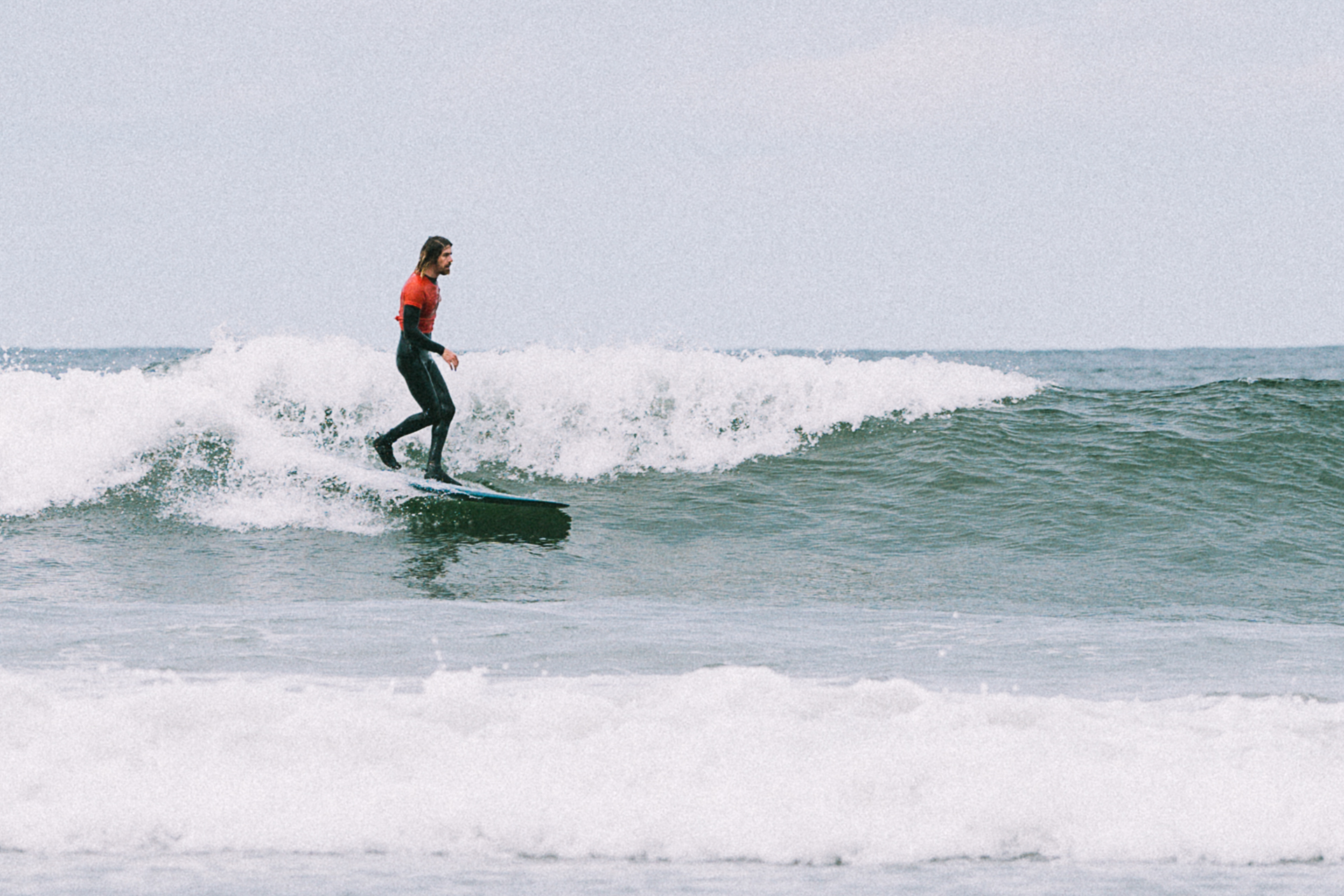
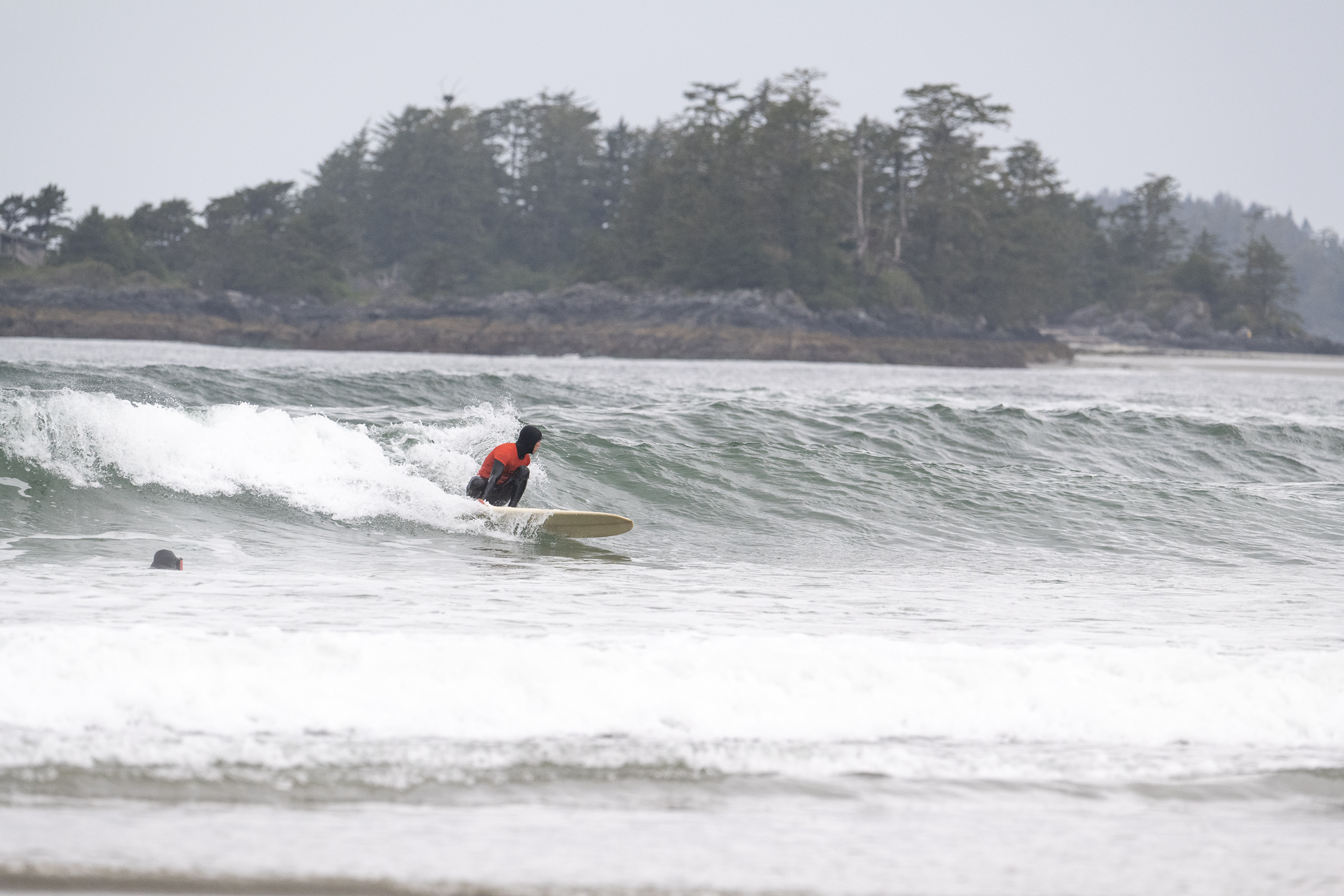
Shorebird spectacle. Photo: Justin Taylor Smith. Morning slider. Photo: Sarah Kempner. Event artist and all around amazing human, Sarah King. Photo: Justin Taylor Smith. Keaton McCullough. Photo: Colin Wiseman. Kearney bros. Photo: Cory Grandfield. Amy Soosa. Photo: Colin Wiseman. Fancy footwork. Photo: Dakota Cooney. Timmy Taussig: Photo: Colin Wiseman. Claudia Simon, Mary Rand and Sarah Niblock. Photo: Colin Wiseman. Heat 3 celebration. Photo: Colin Wiseman.
This year, there were waves. Talking with Marie the week prior, she expressed hope for chest high rollers, and that’s what we got. Mellow enough for everyone to participate, punchy enough for performance surfing by those with the ability to set a rail. The sun returned, thankfully, and it was onto the Tuff City skatepark to close things out with 40-something chaotic six-person heats . Then to Tofino Brewing for the awards and after party and silent auction and into the night to keep the good vibes flowing, if you had enough juice left in the tank. To build nostalgia with a growing community of Triple Plankers, to raise money for Redd Fish Restoration (over $30k this year), to remind ourselves that we can come together around board riding and take small steps to make a difference. To fundraise and raise awareness that conservation and restoration are integral to preserving the places we love to play. To recognize the cultural connections that can be made by folks from all walks of life through board-based celebration.
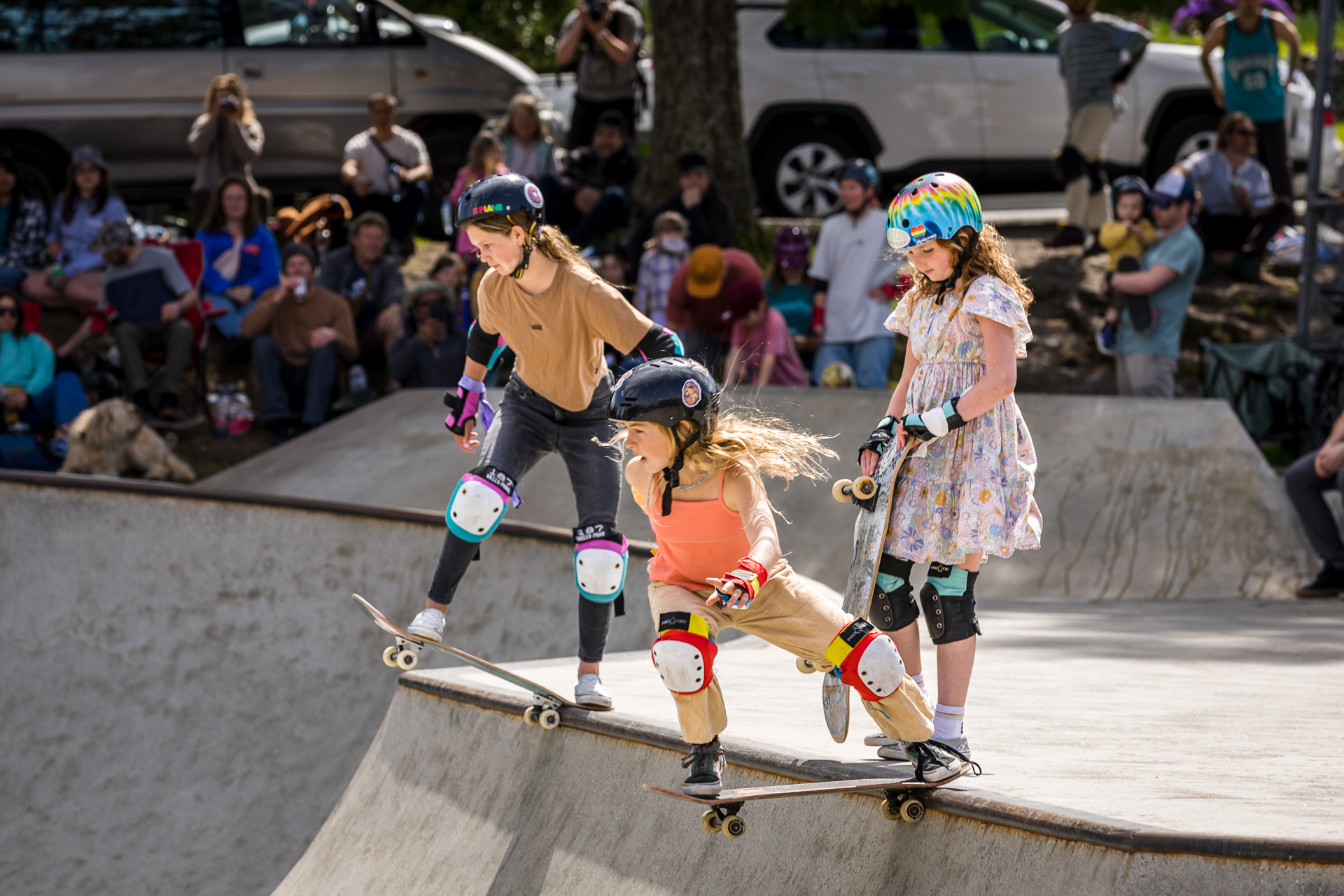
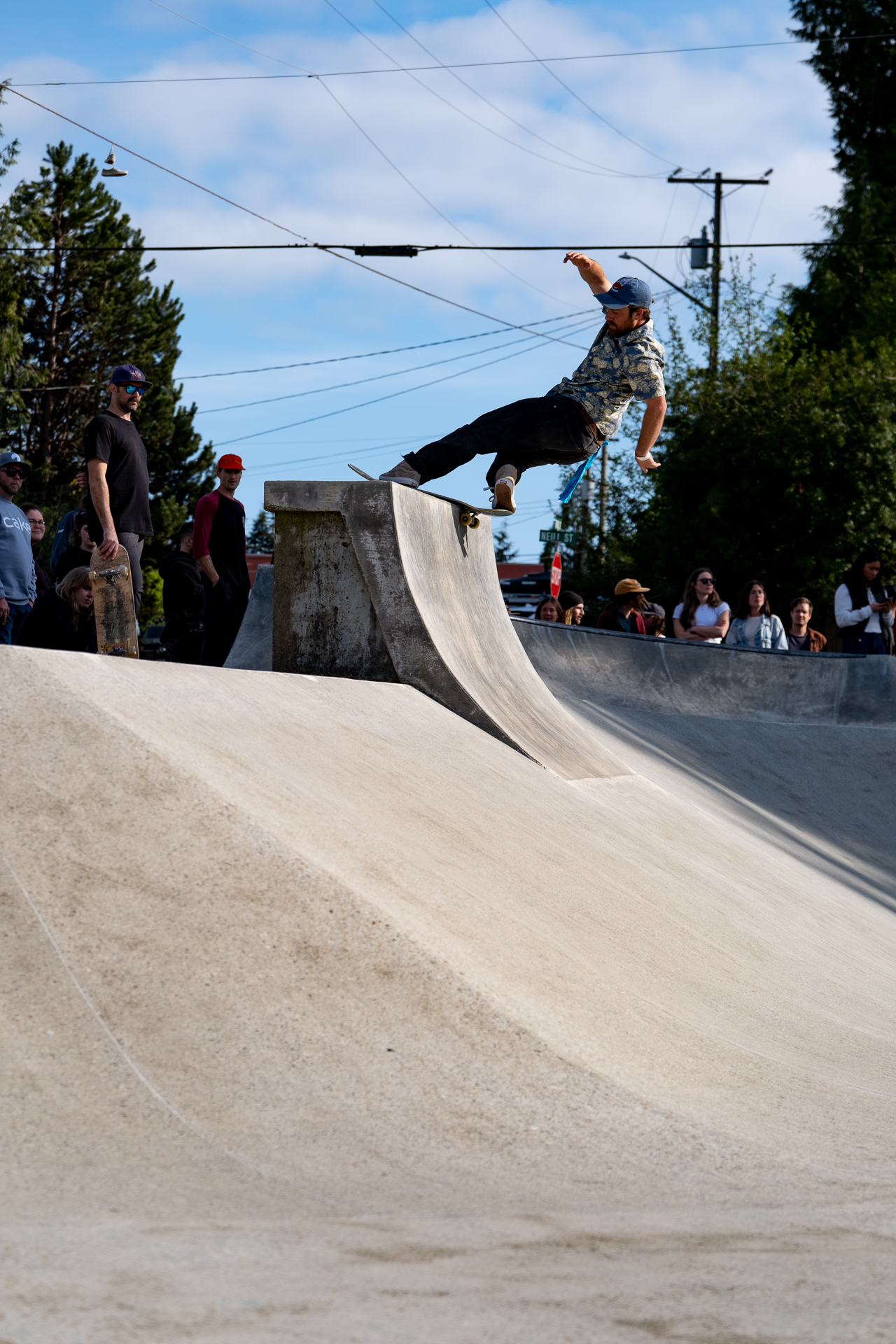
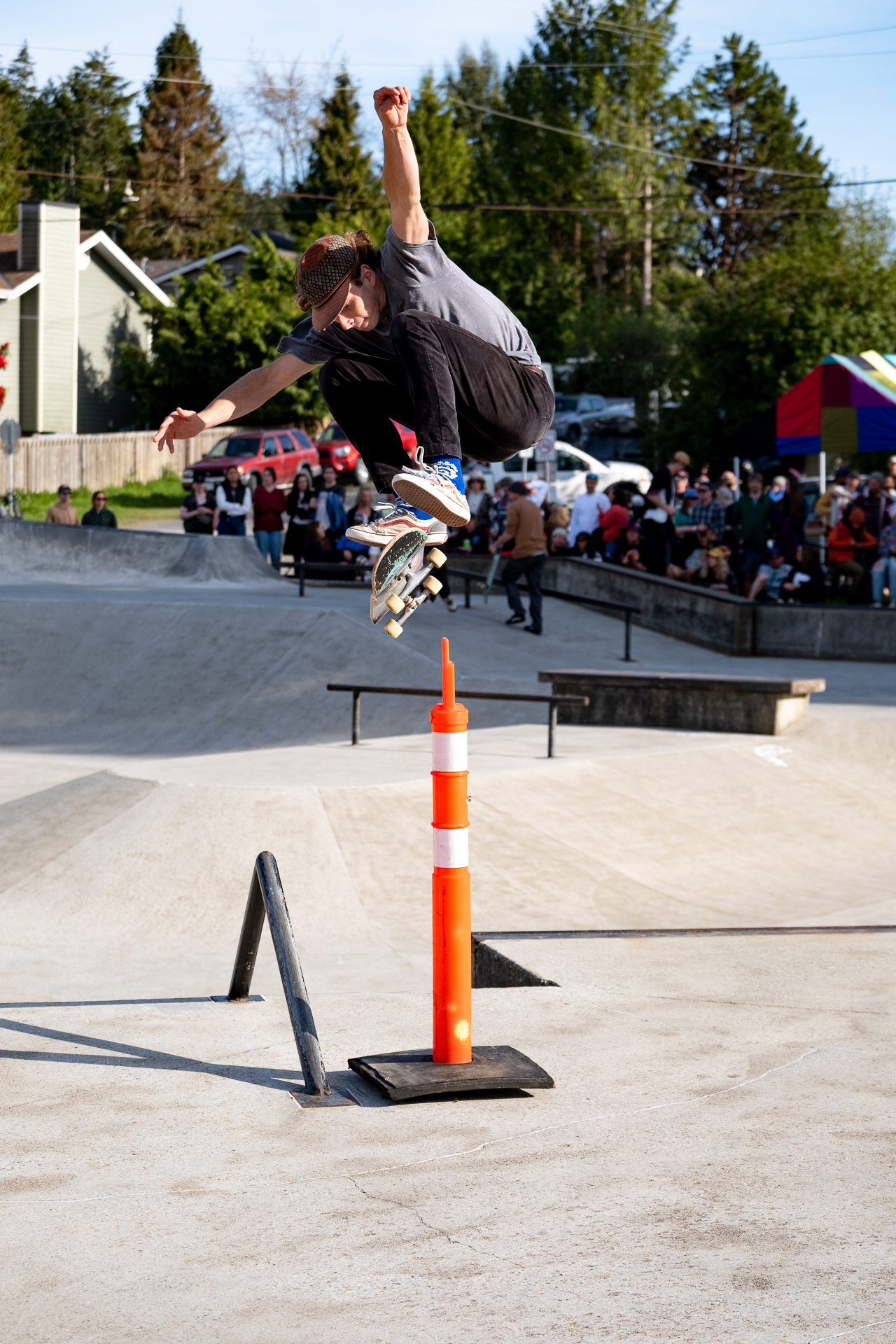
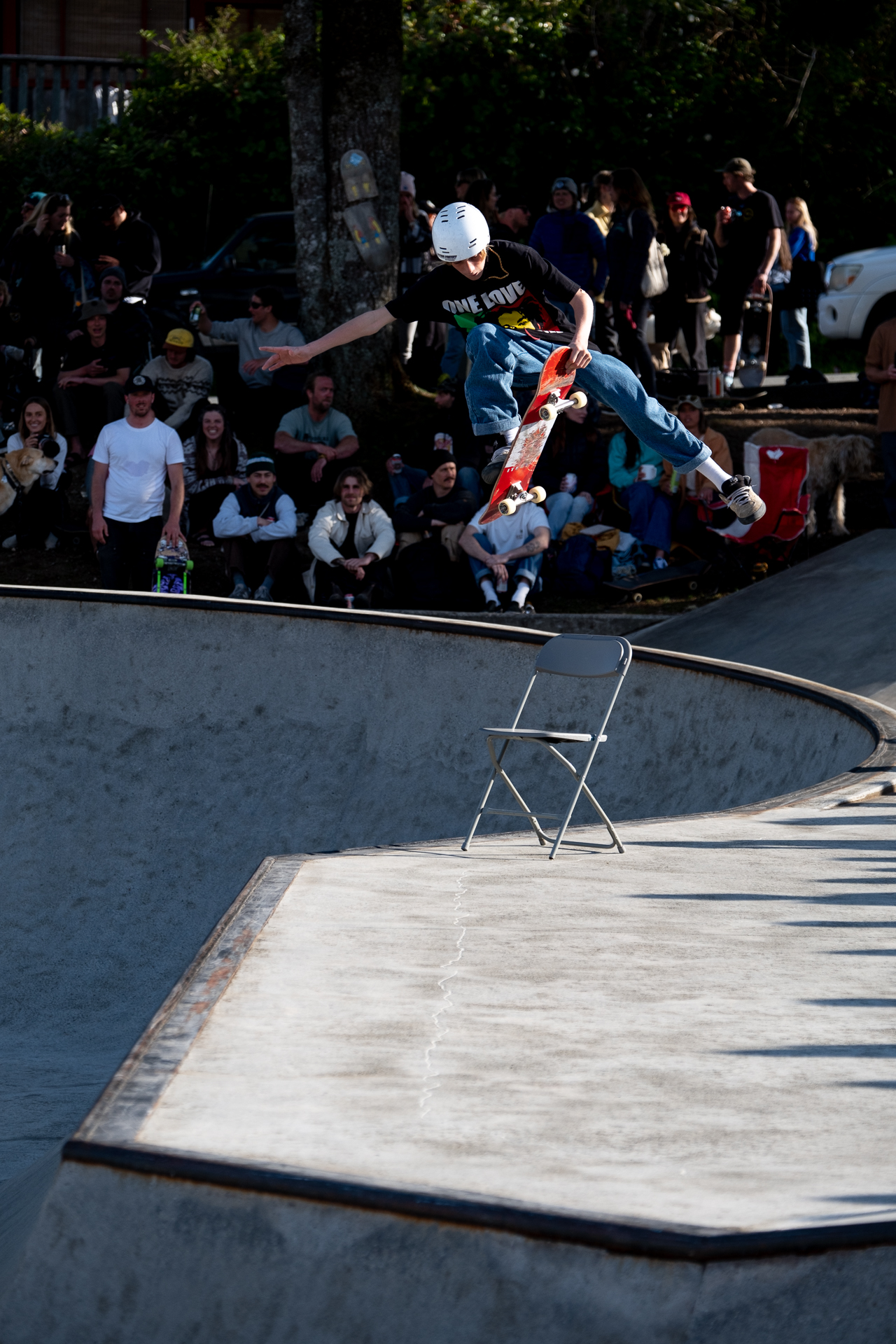
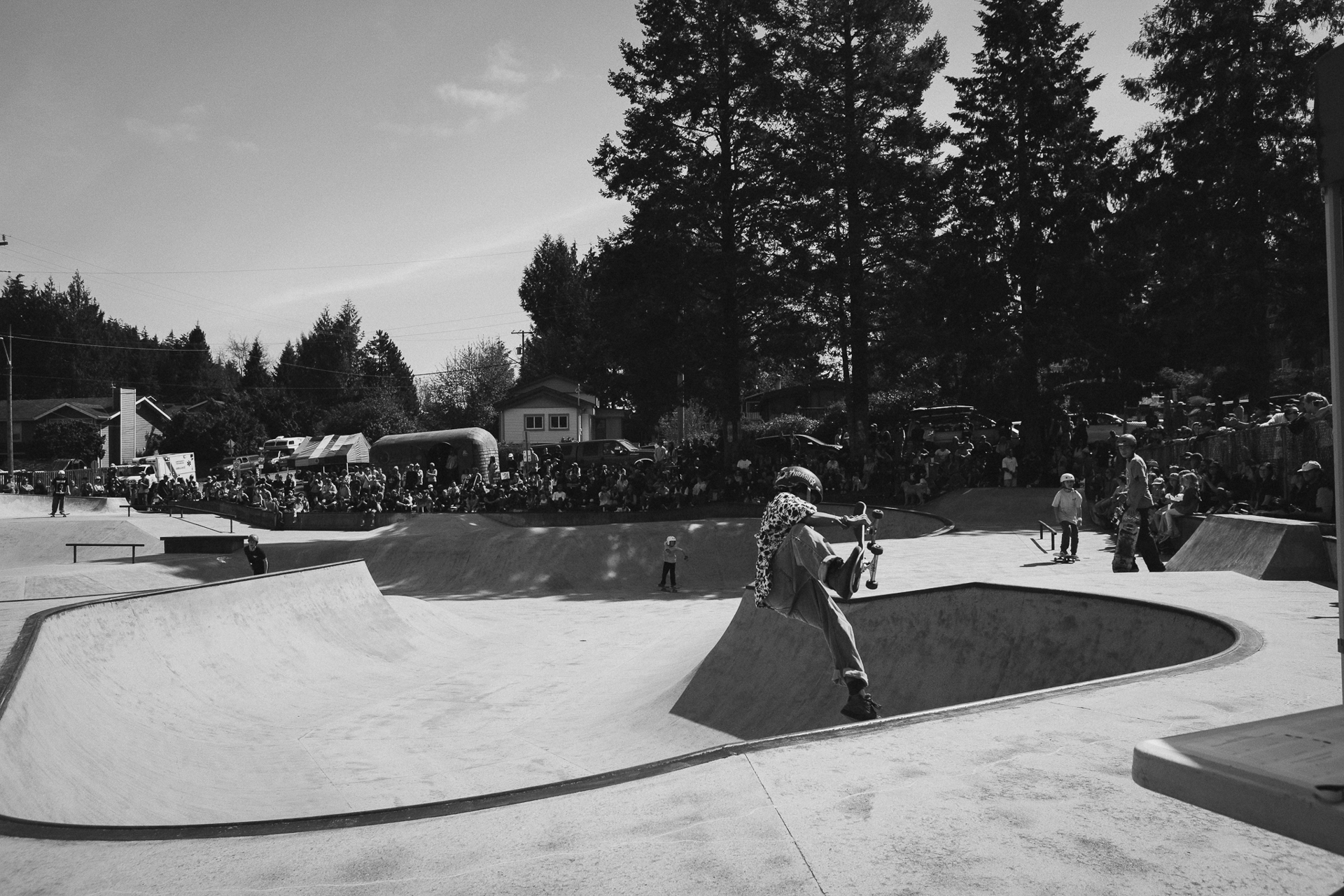
Heat 1 sets the pace for skate. Photo: Sarah Kempner. Jeremy Randall. Photo: Colin Wiseman. Local’s expression session. Photo: Colin Wiseman. Kyten Traviss. Photo: Colin Wiseman. Kayne Gaces. Photo: Clover Fedoriuk. Max Tokanuga. Photo: Colin Wiseman. Layback. Photo: Colin Wiseman. Poppy Montgomery. Photo: Colin Wiseman.
Because, as the Triple Plank reminds us, we hold a responsibility to wild spaces. The mountains and the ocean give us so much, it’s only right that we give something back and ensure that future generations can enjoy these places as much as we have. That the multitude of young folks reveling in their introduction to sideways culture through the Triple Plank can find their own nostalgia upon return and grow into responsible stewards of this world that gives us so much. Which, in my case, has been the guiding light in a life spent chasing flow.
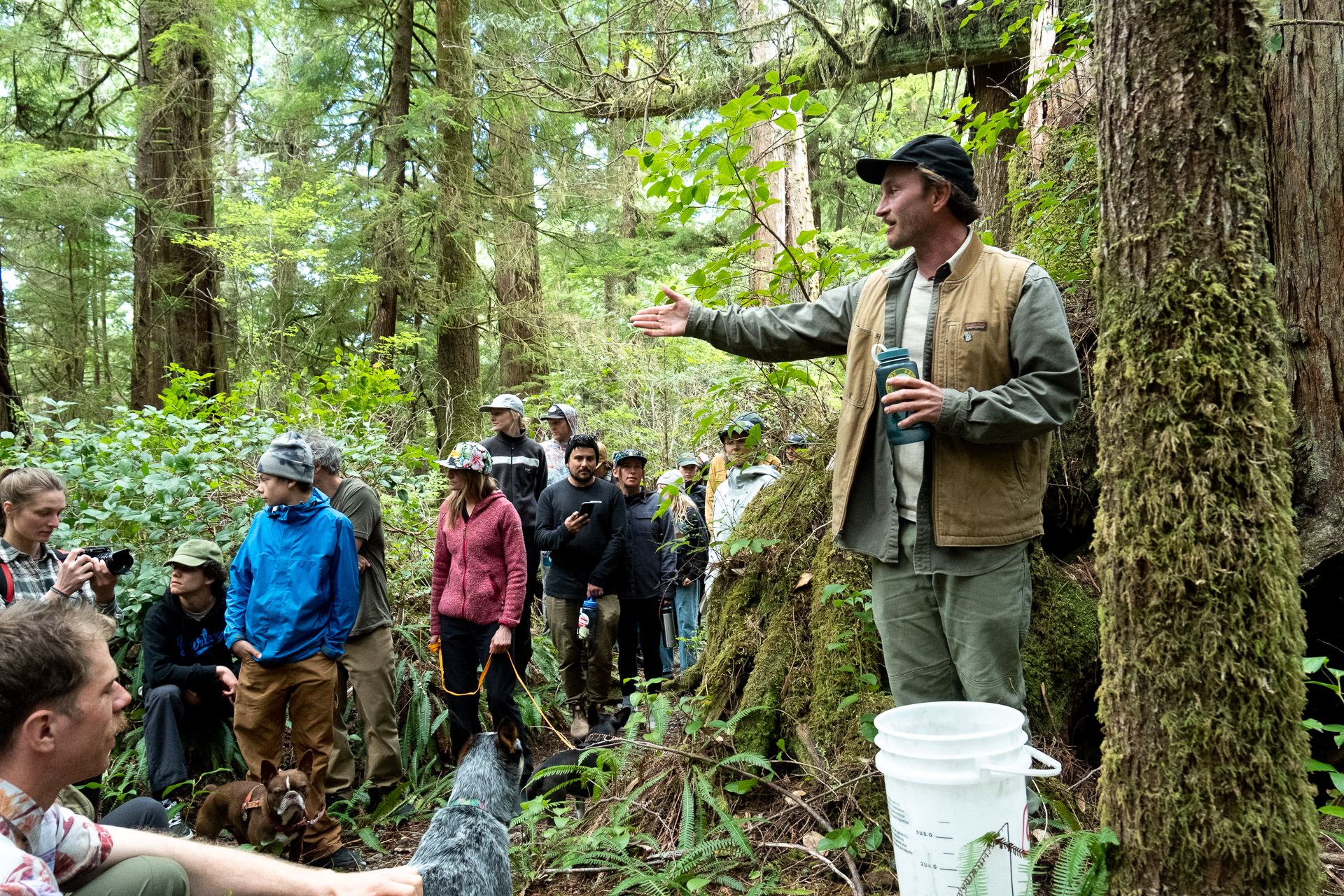
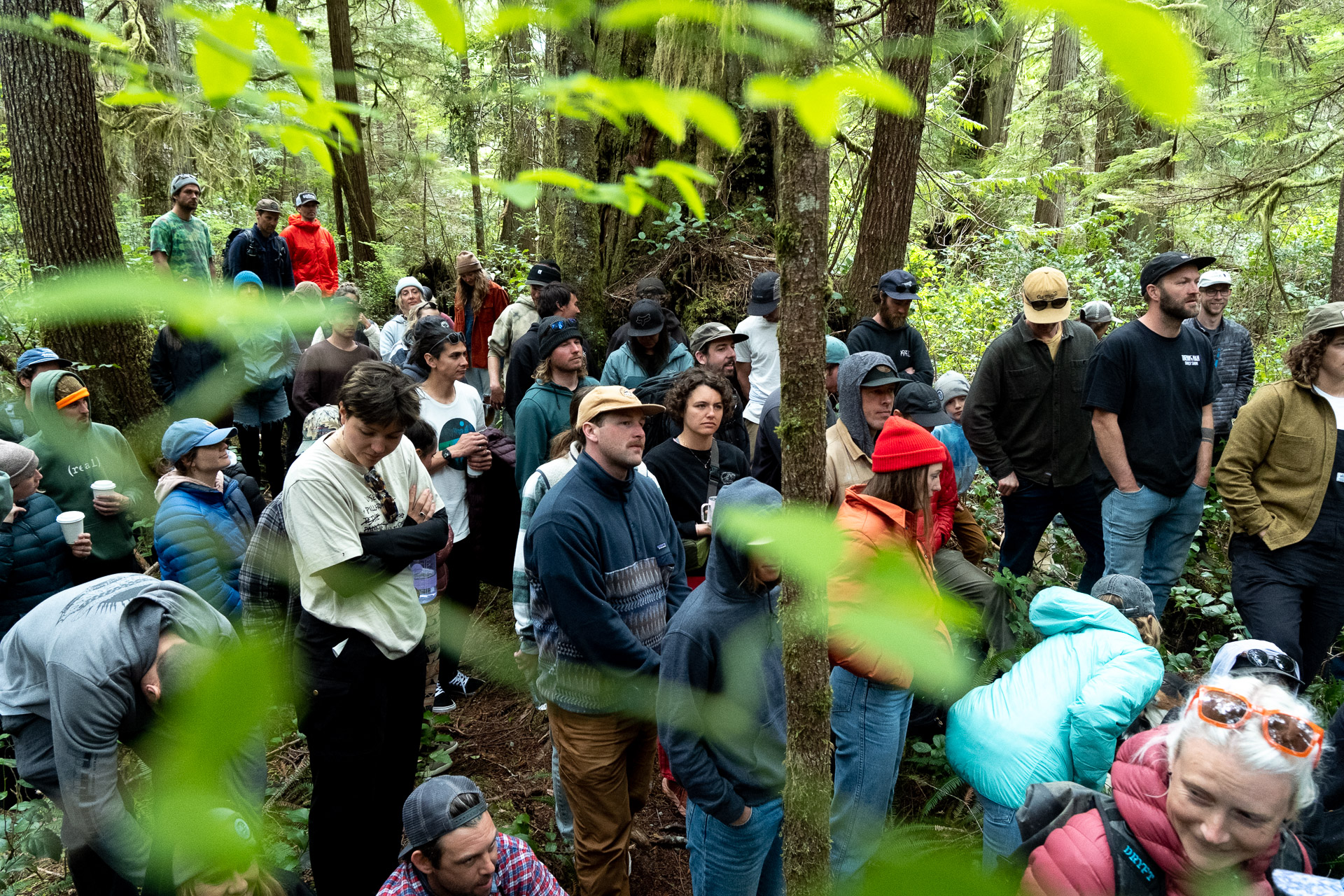
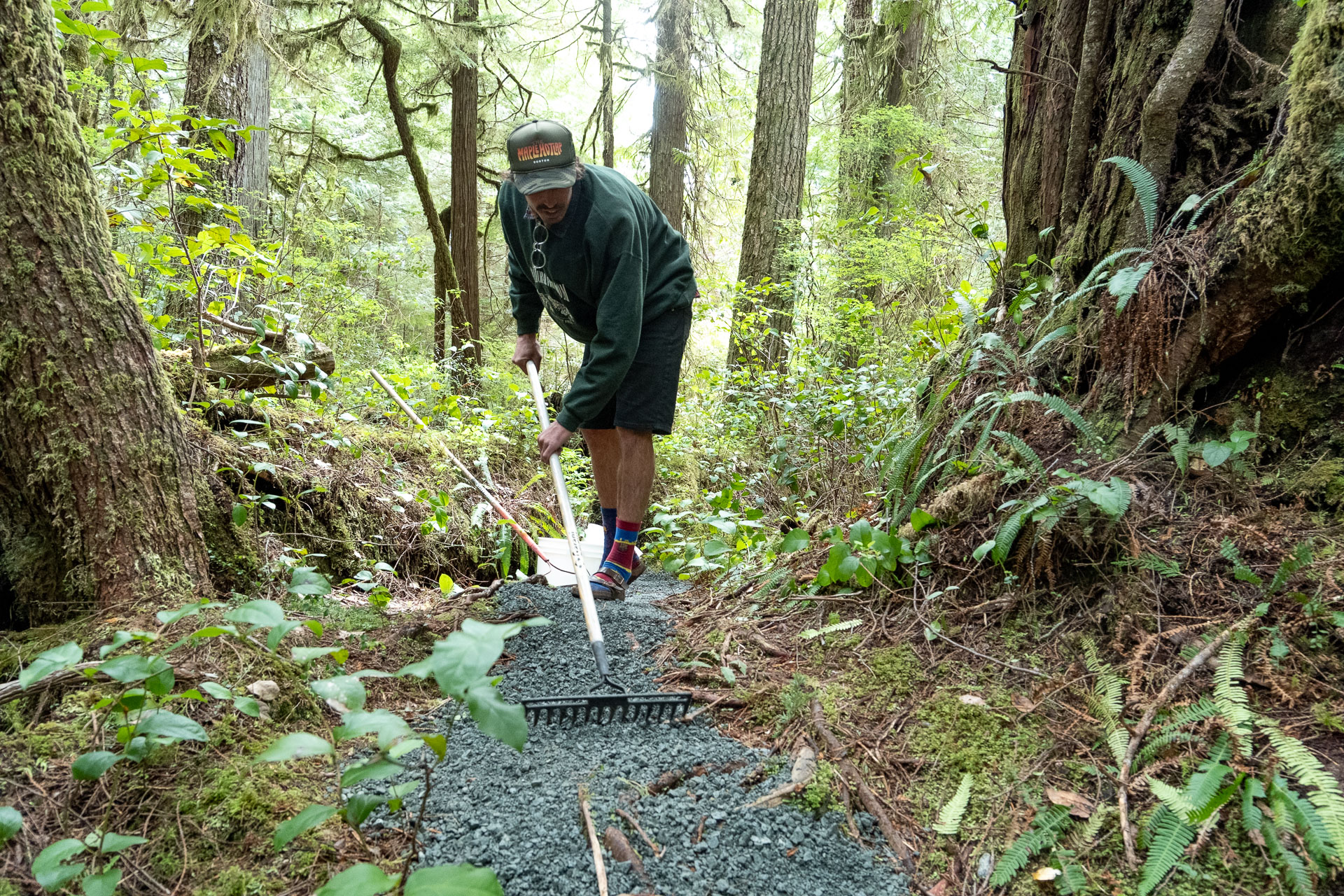
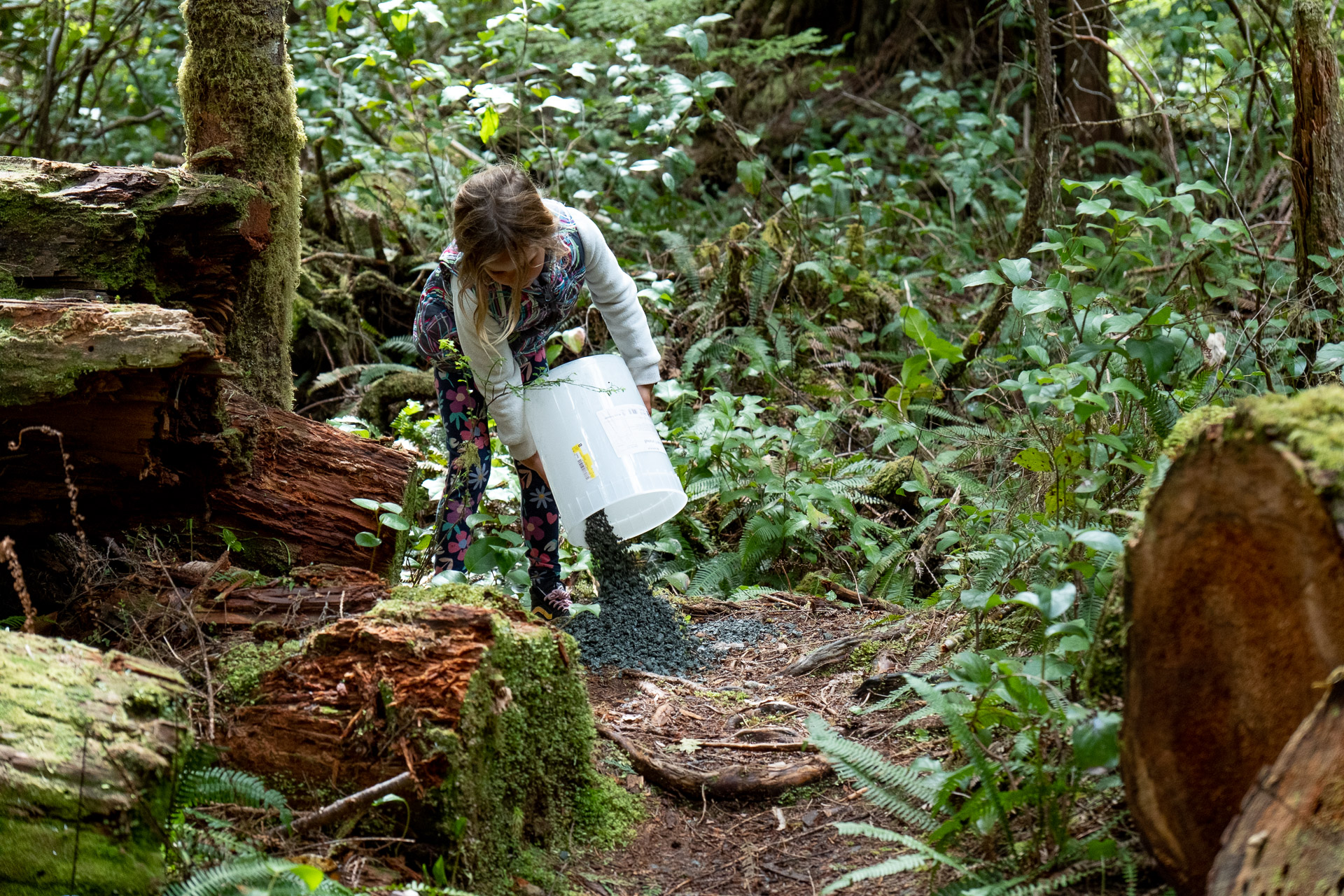
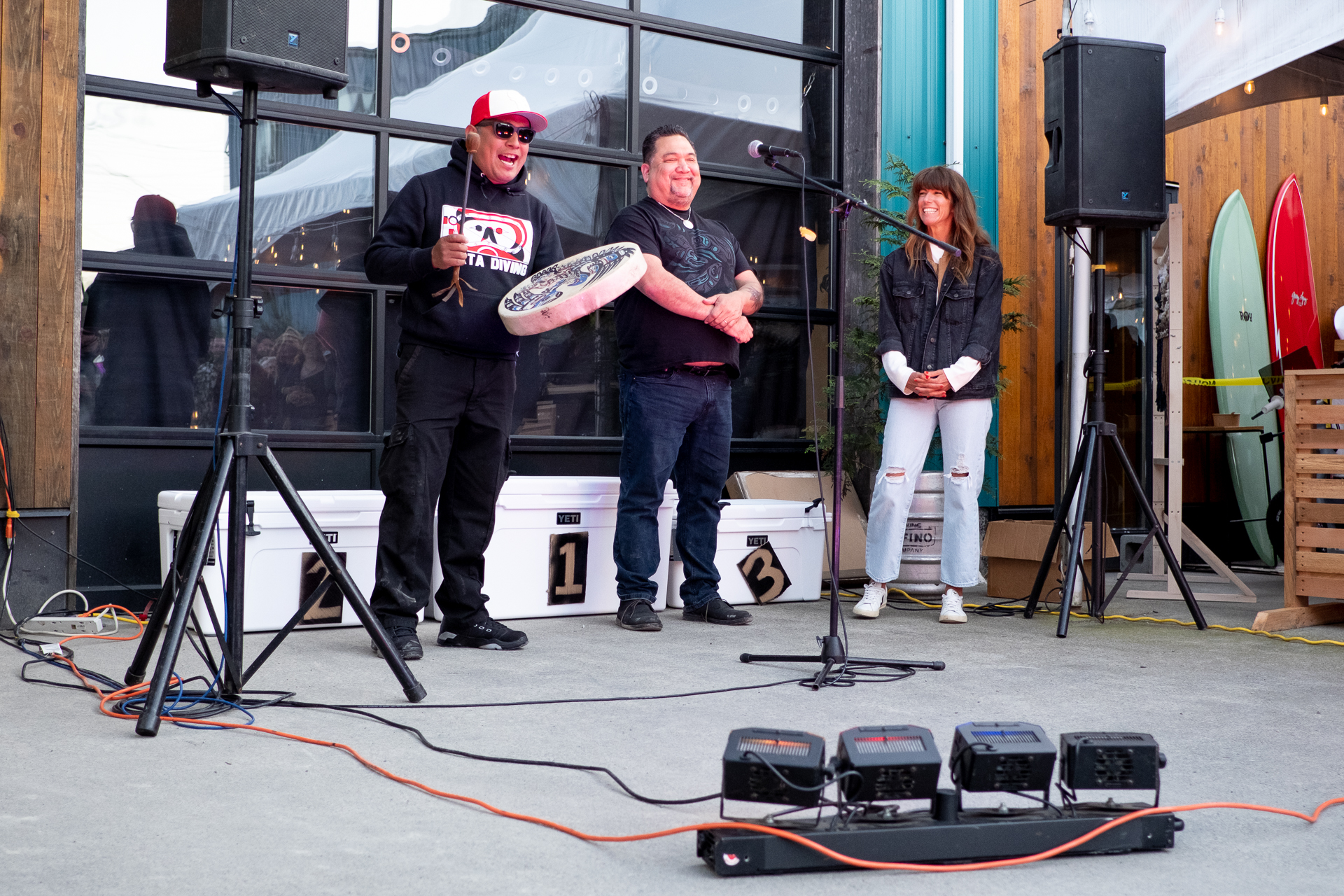
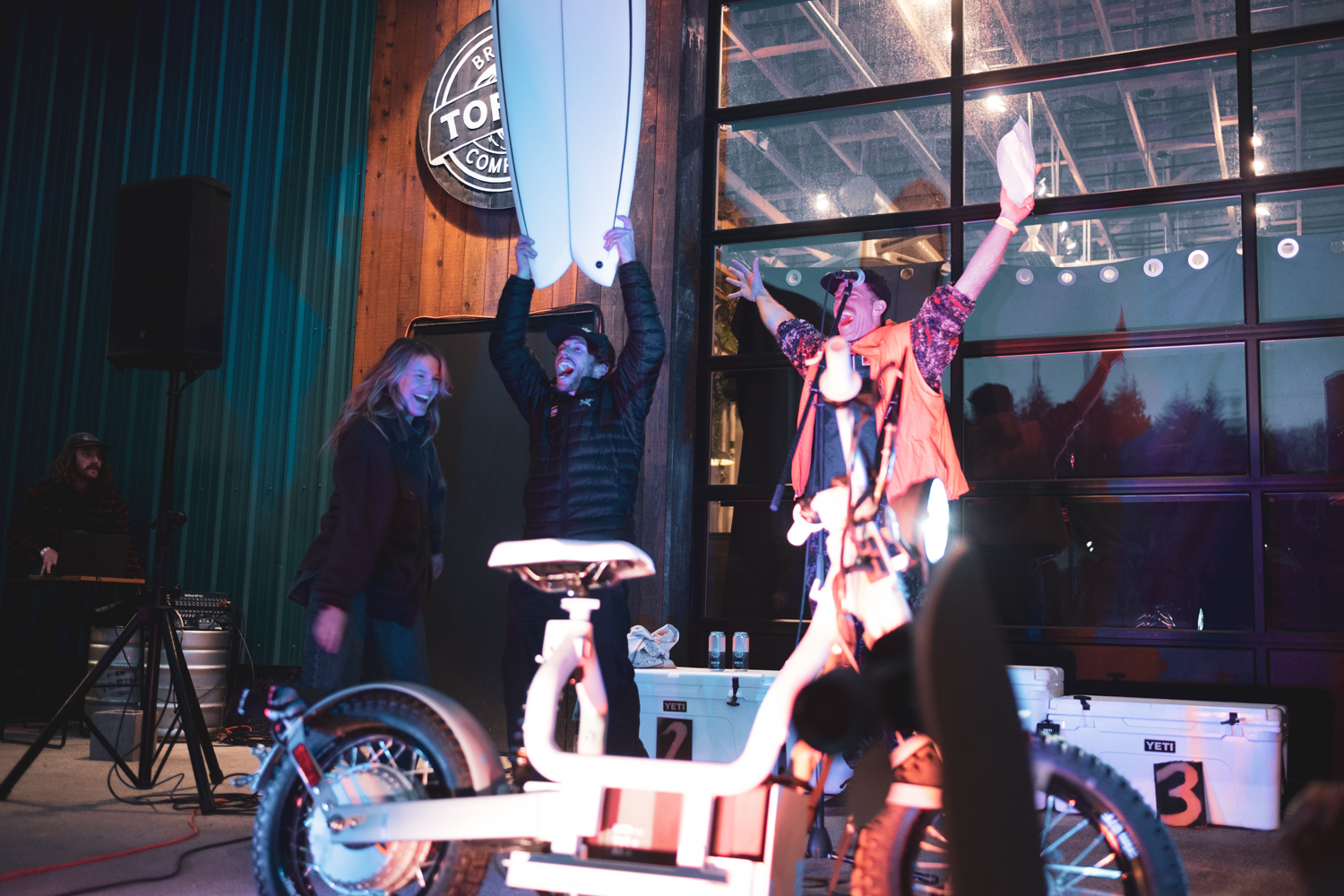
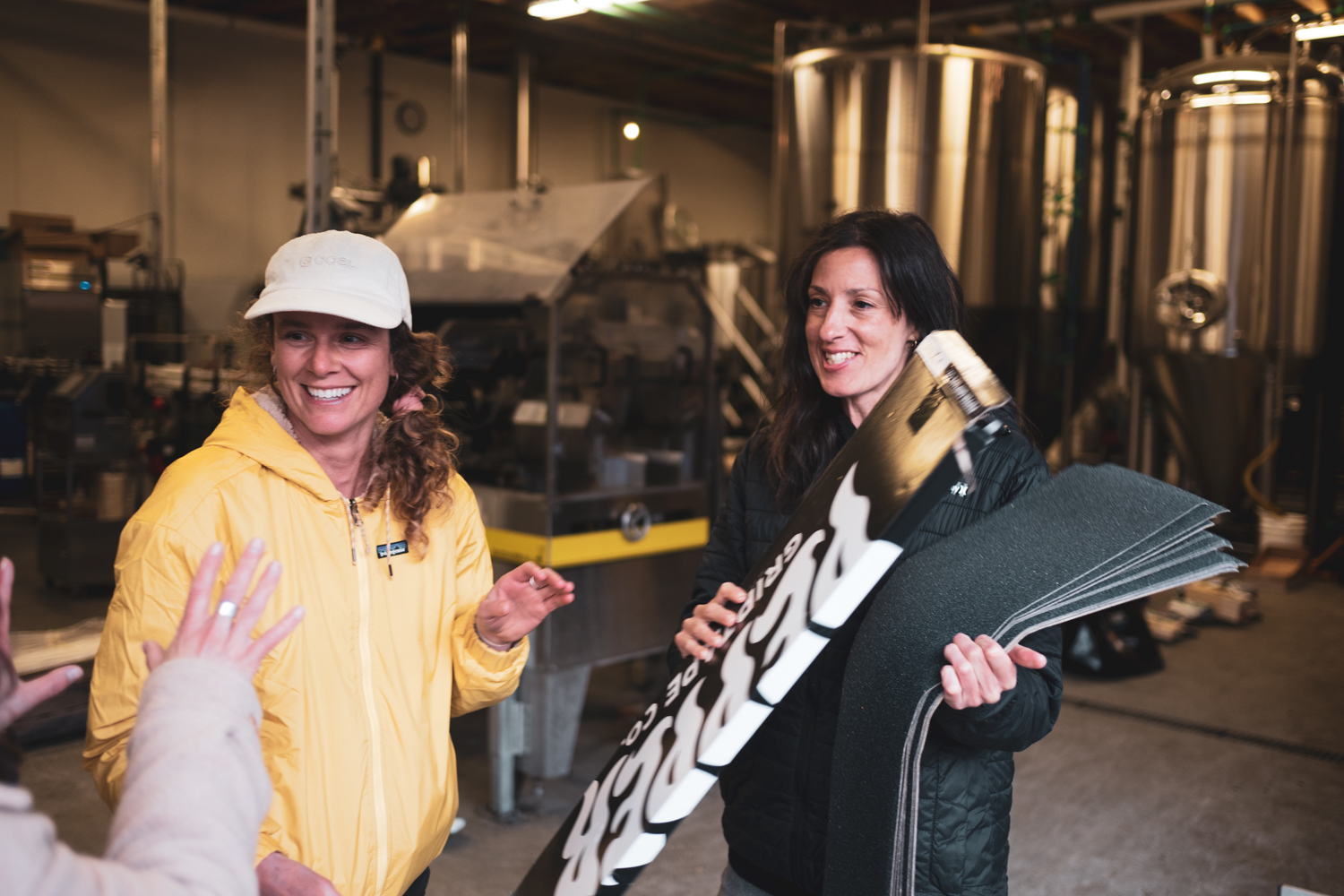
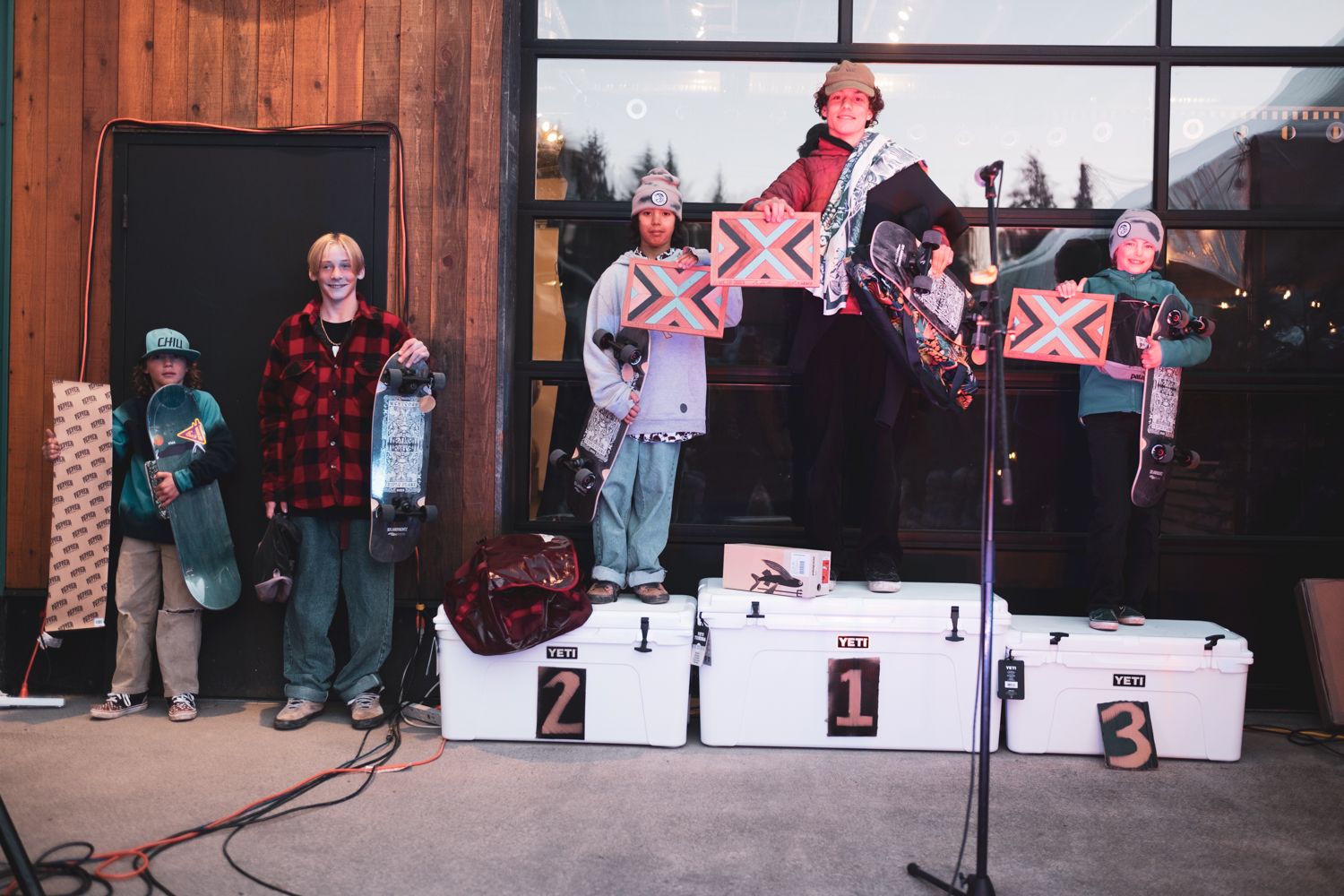
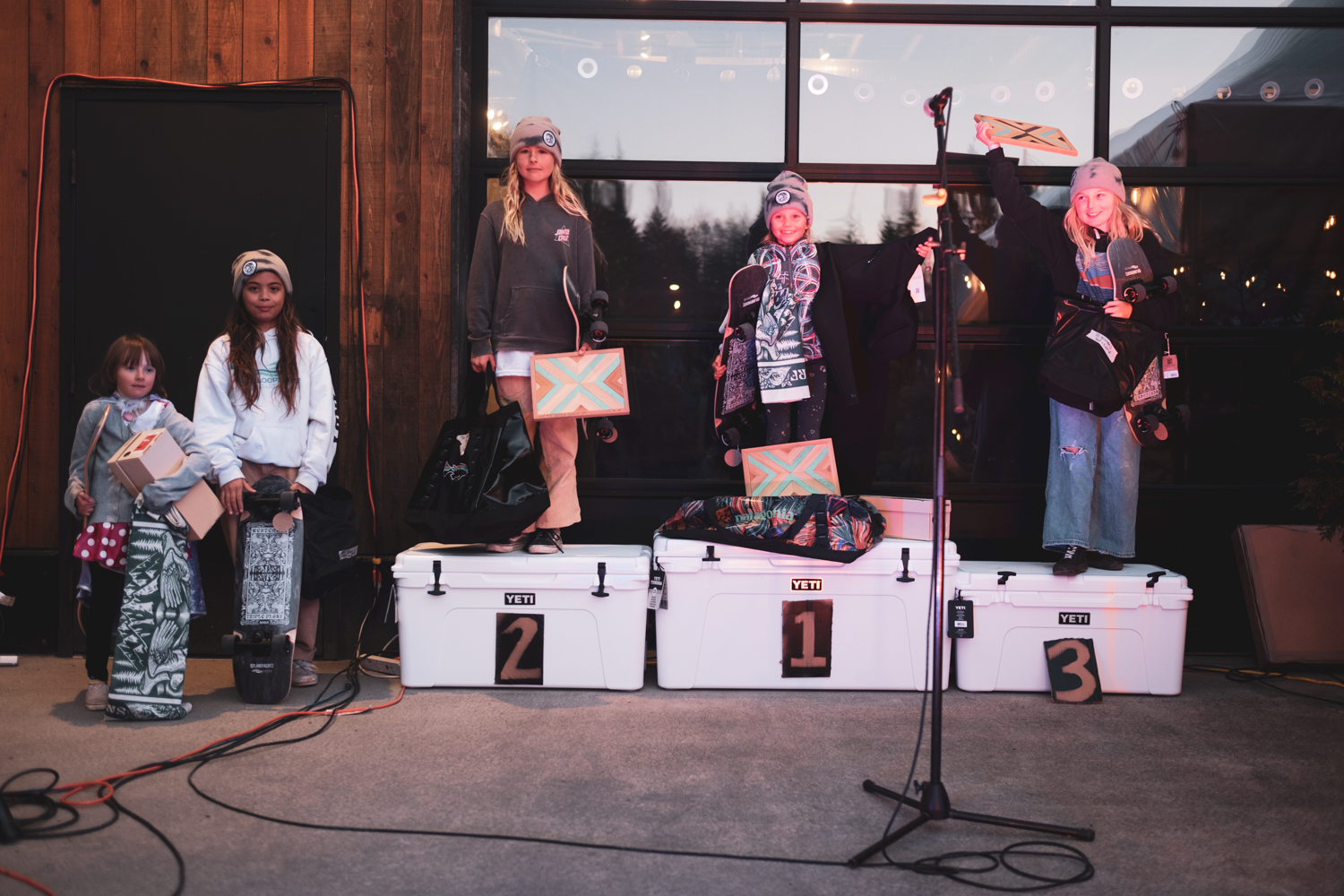
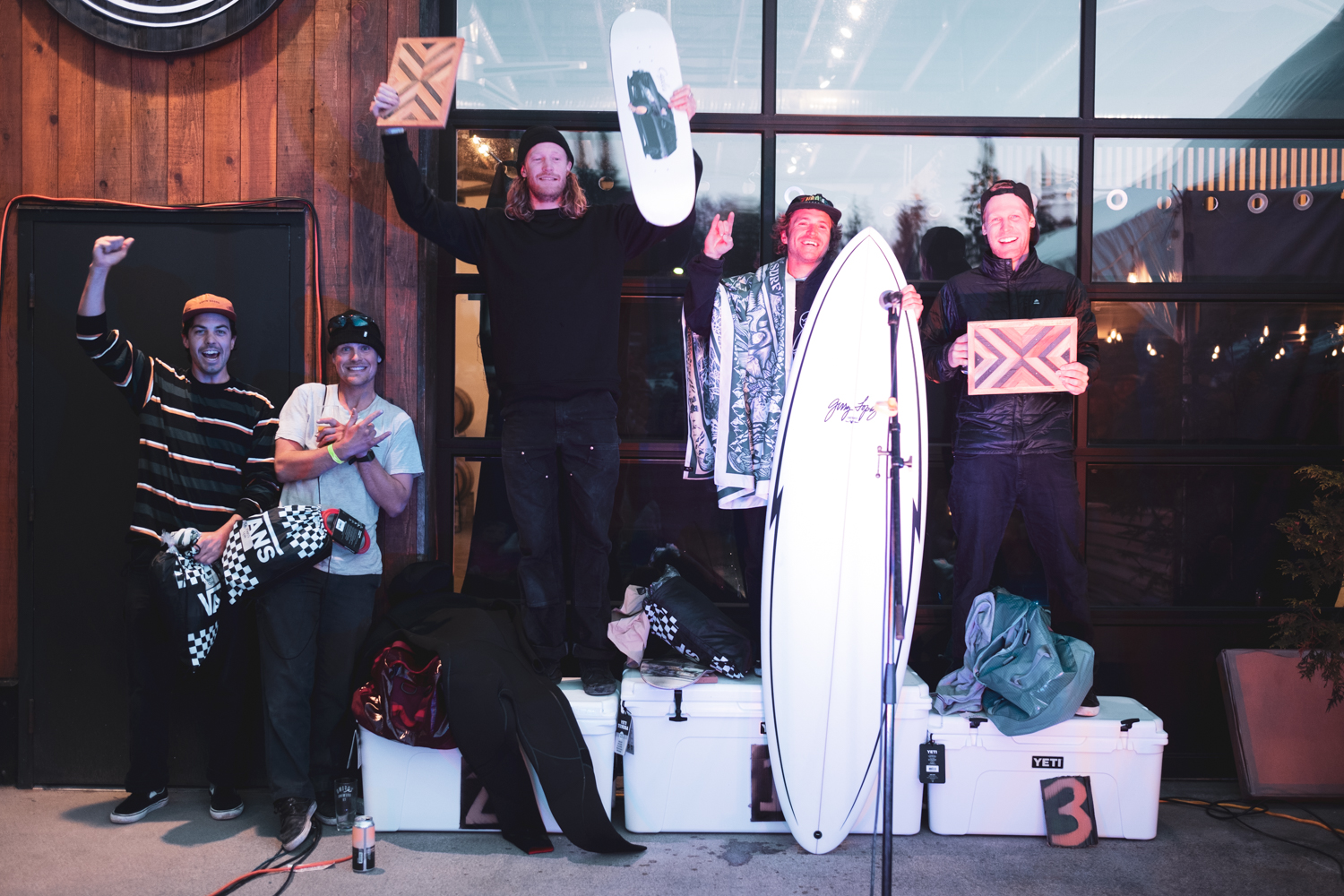
A walk in the forest with Ross Reid and path building with Redd Fish Restoration. Photos: Colin Wiseman. Land acknowledgment and celebratory songs. Photo: Colin Wiseman. Dead middle; Marie-France Roy and Alicia Gilmour; trifecta podiums, for the highest cumulative scores through the three disciplines of snow, skate and surf. Photos: Cory Grandfield.
CLICK HERE TO VIEW THE RESULTS.
We would like to thank all the sponsors, volunteers and attendees that make the WestCoast Triple Plank the growing celebration of community and purpose that it is today. Without you, none of this would be possible.
Furthermore, we would like to acknowledge that the Banked Slalom of the WestCoast Triple Plank is held on the traditional territory of the K’ómoks First Nations in the mountains of the Pentl’ach, E’iksan, Sahtloot and Sasitla people. The surfing and skateboarding components are held on the traditional territory of the ƛaʔuukʷiʔatḥ (Tla-o-qui-aht) First Nation of the Nuučaanuł (Nuu-chah-nulth) Nations. We recognize the privileges settlers enjoy today because of colonialism and understand the ongoing violence and trauma that Indigenous peoples still endure every day. Together let’s continue the important work towards reconciliation.
